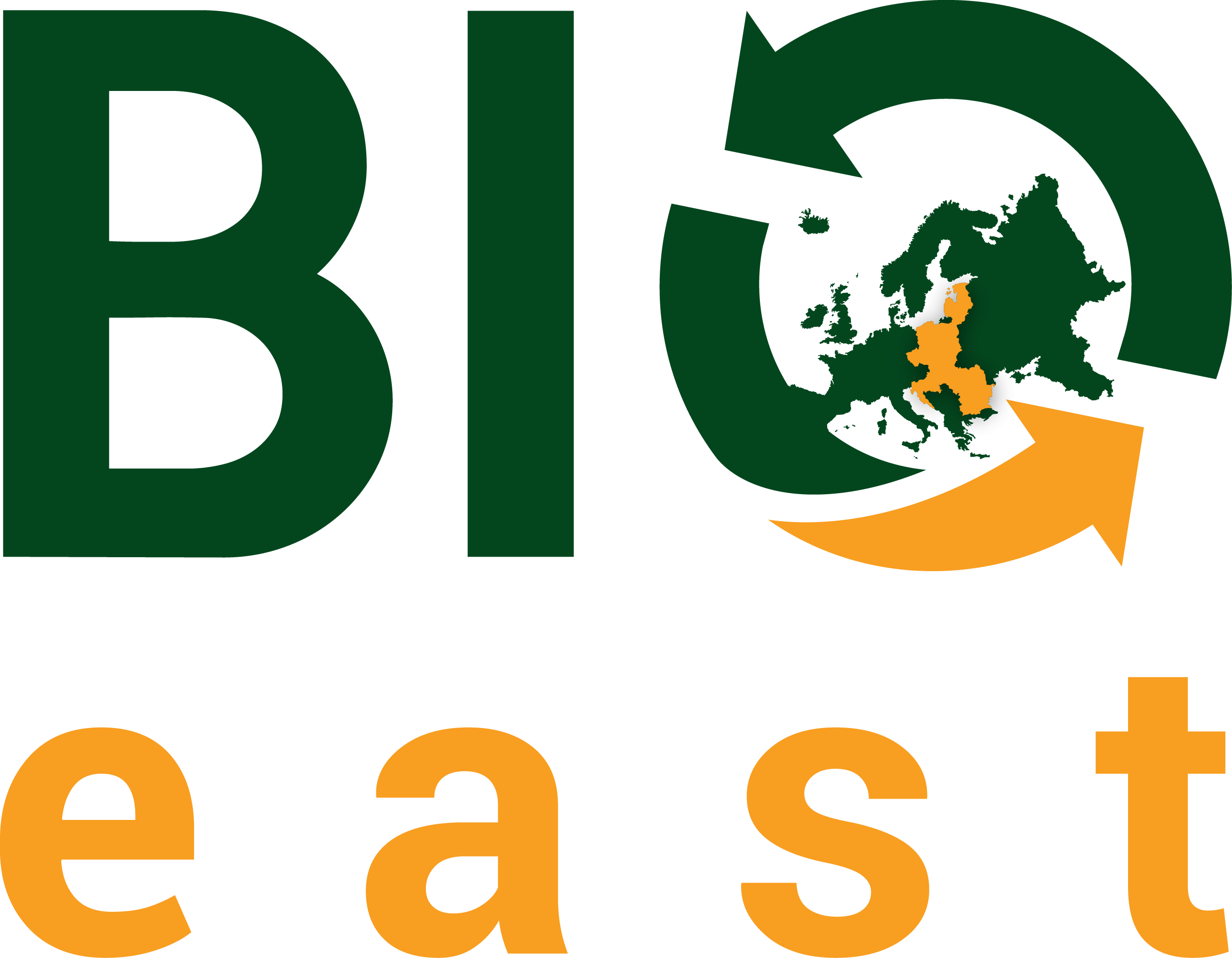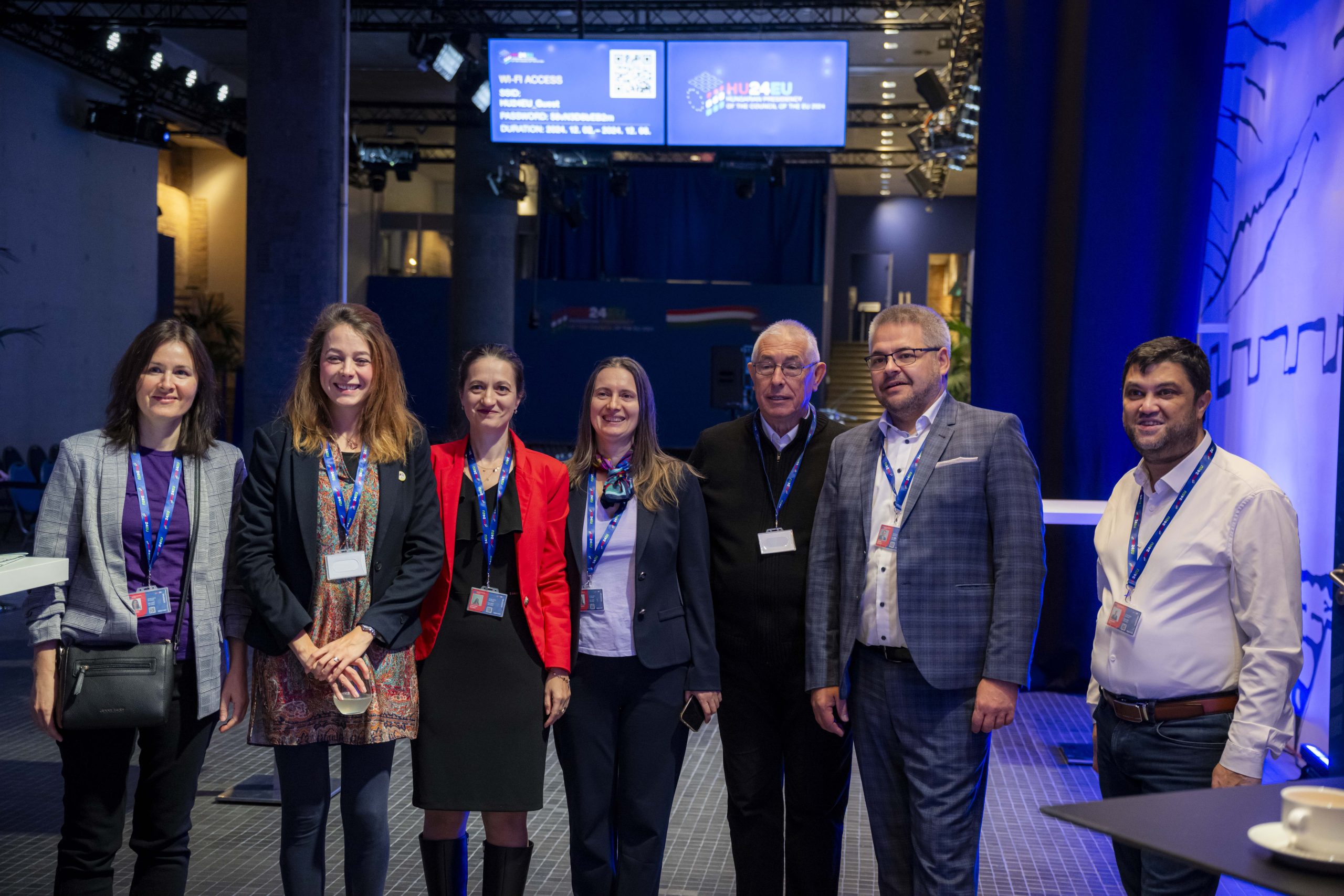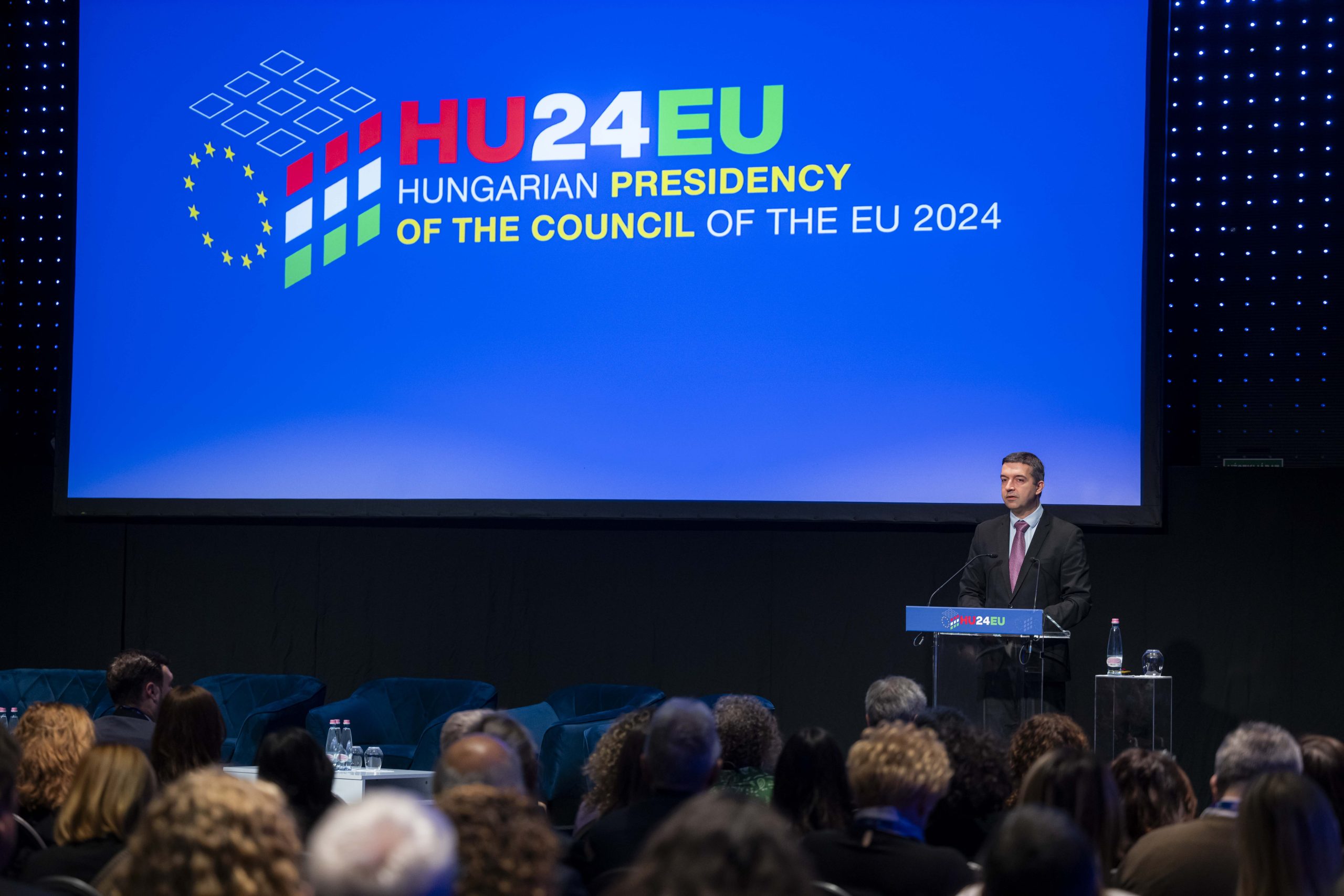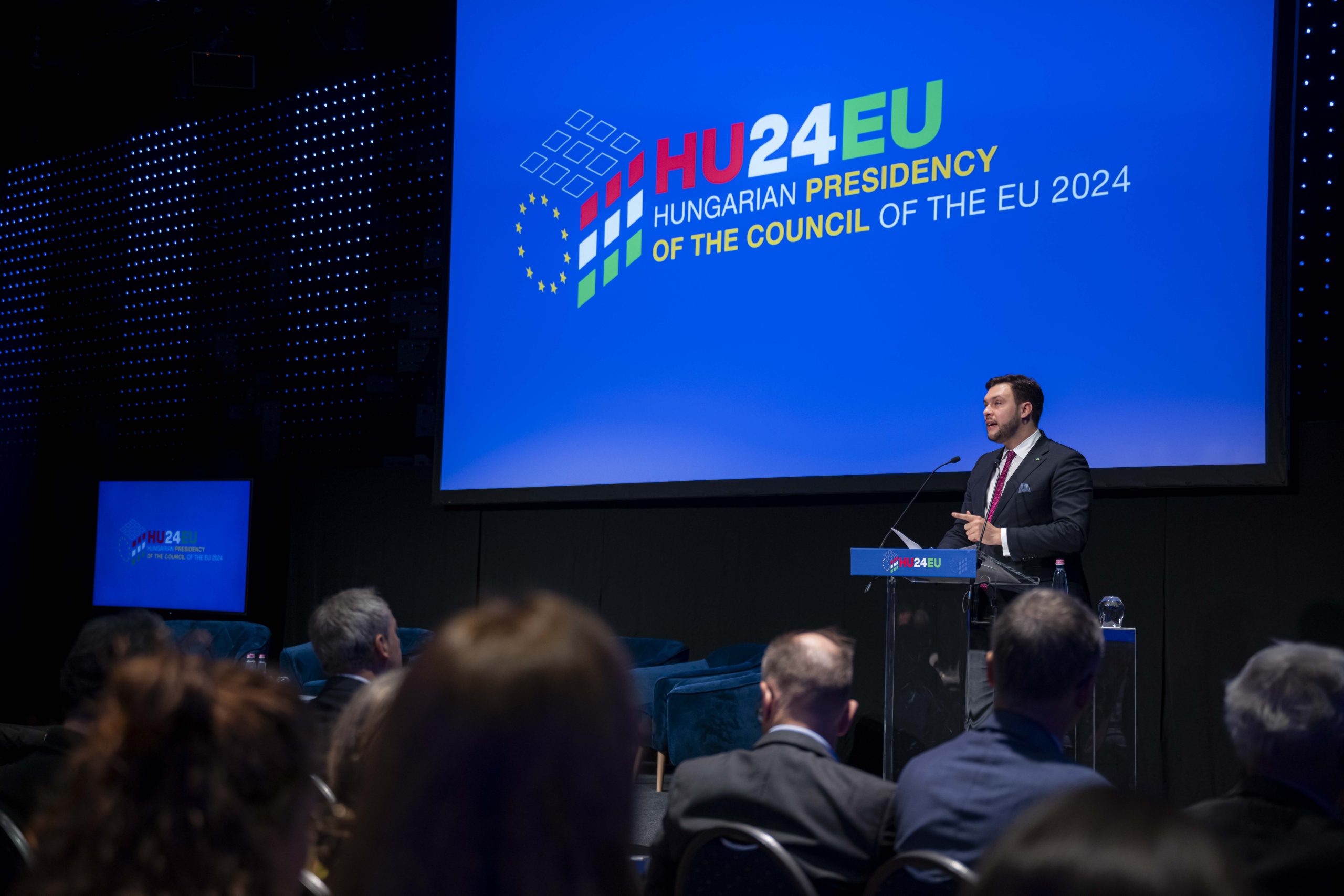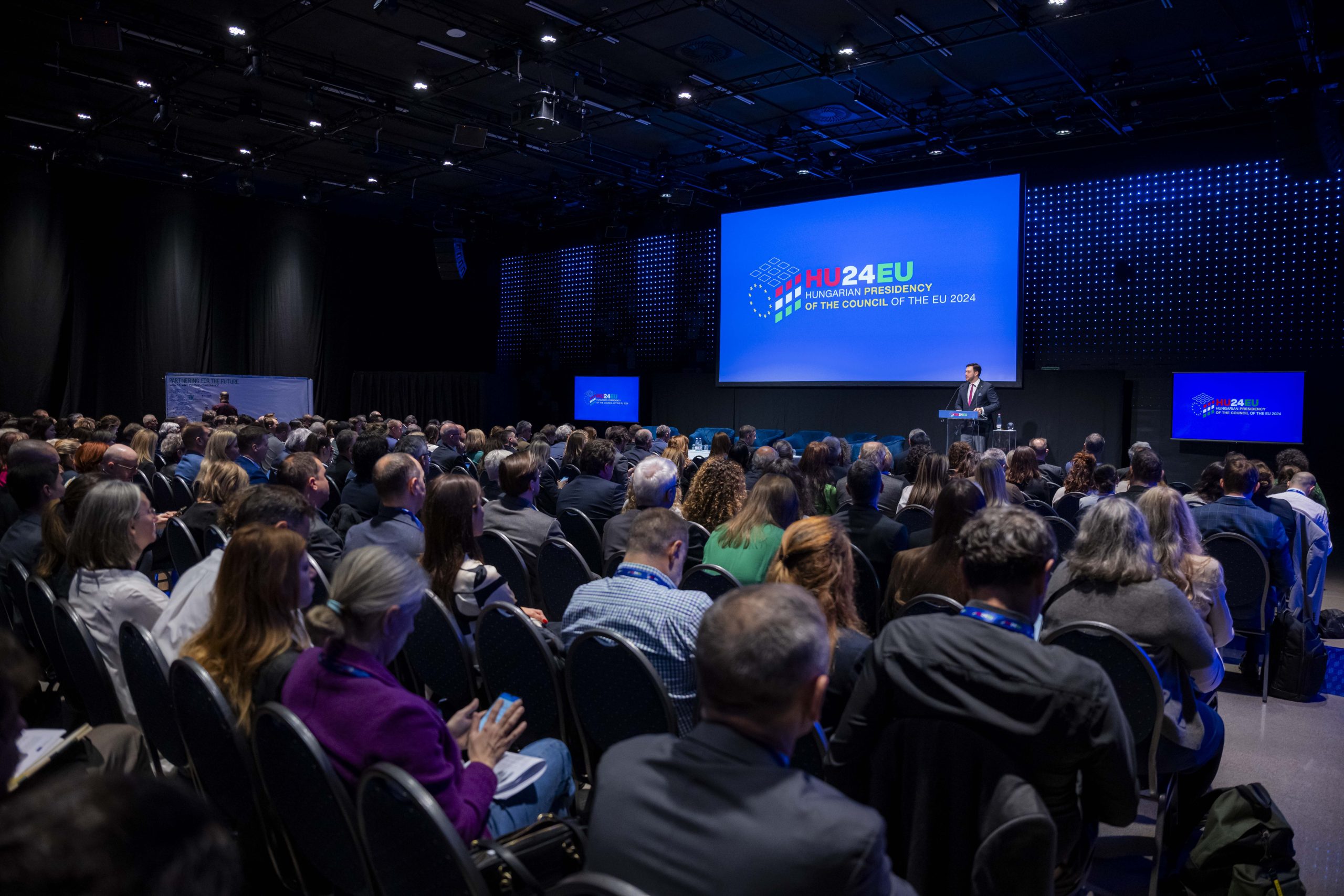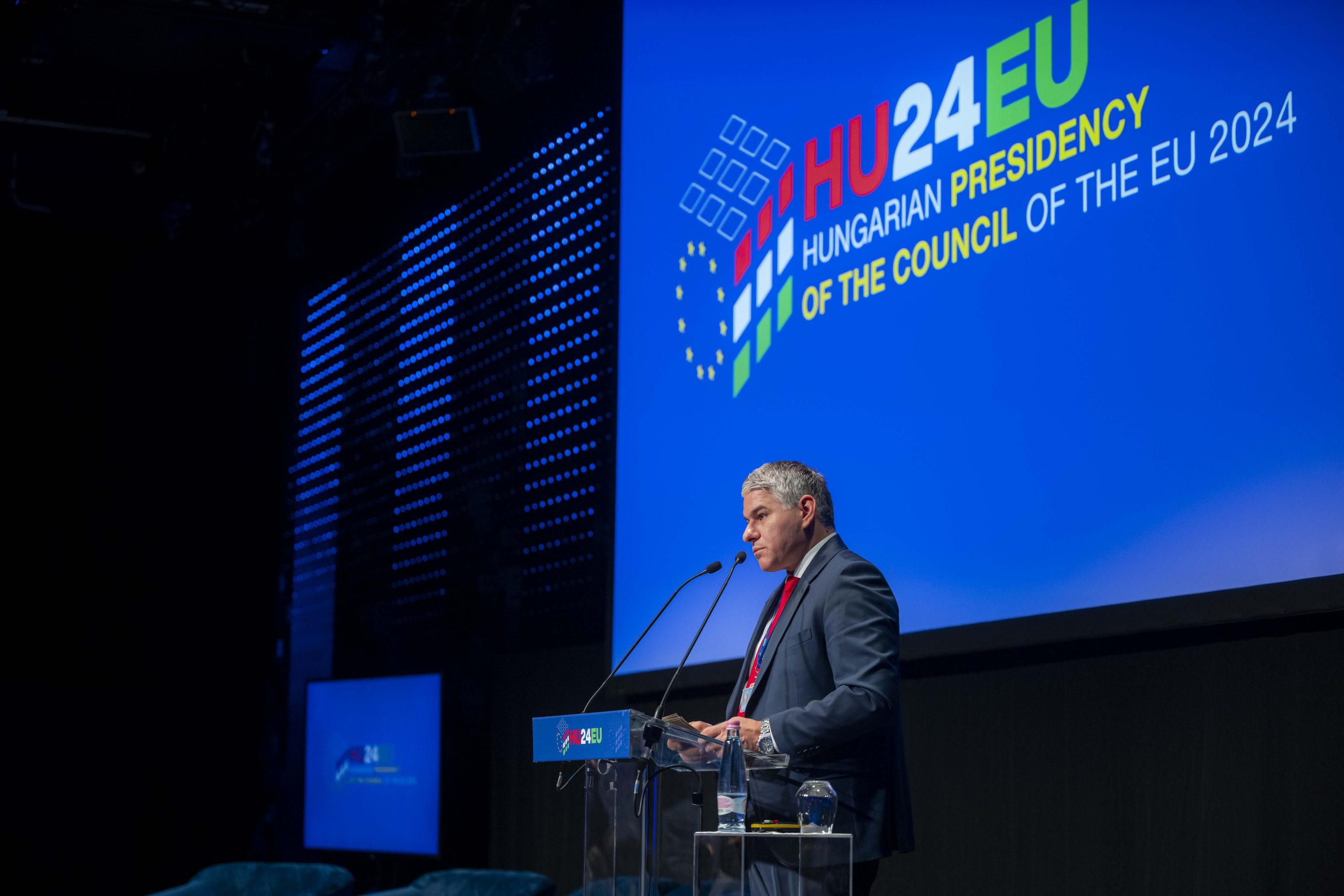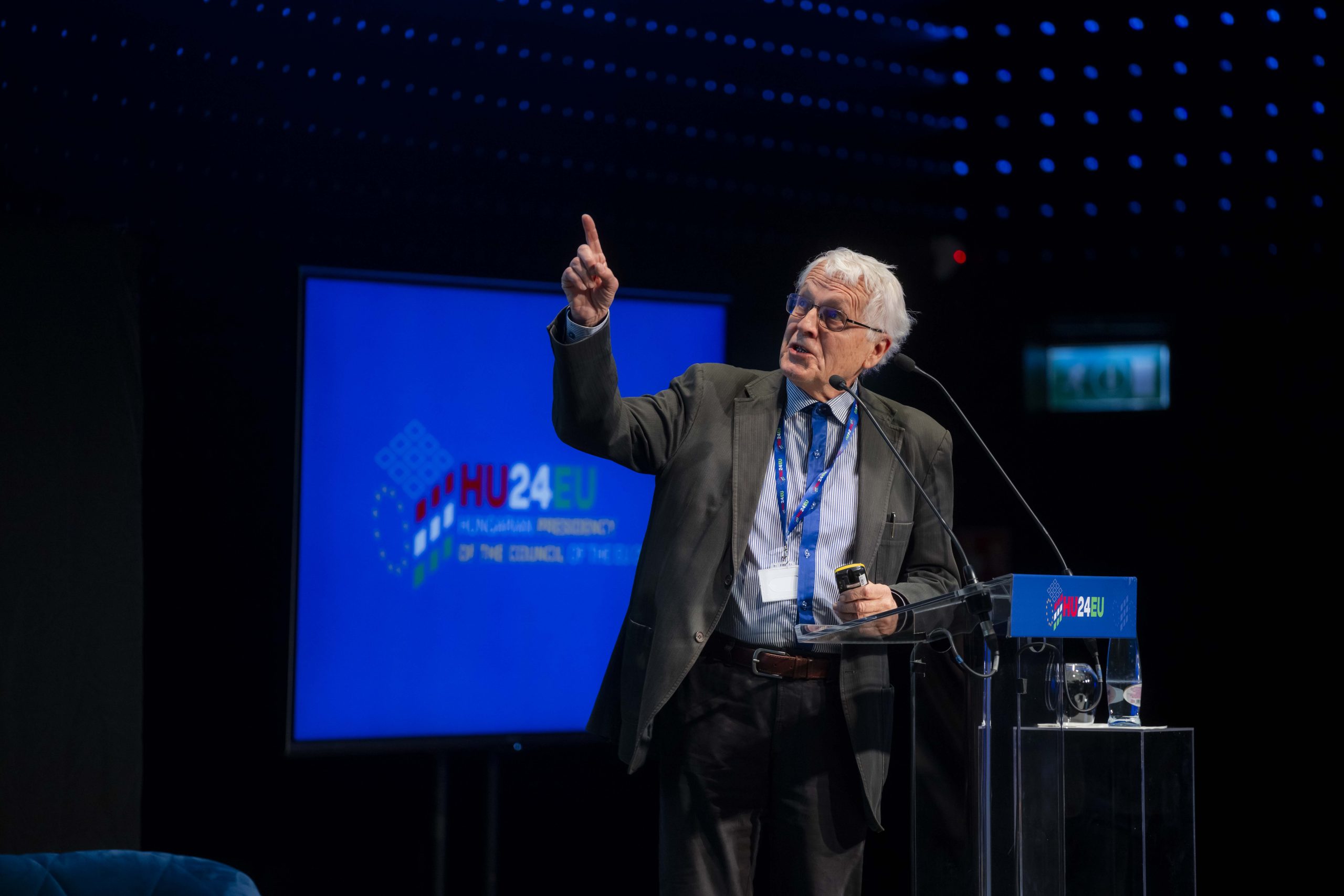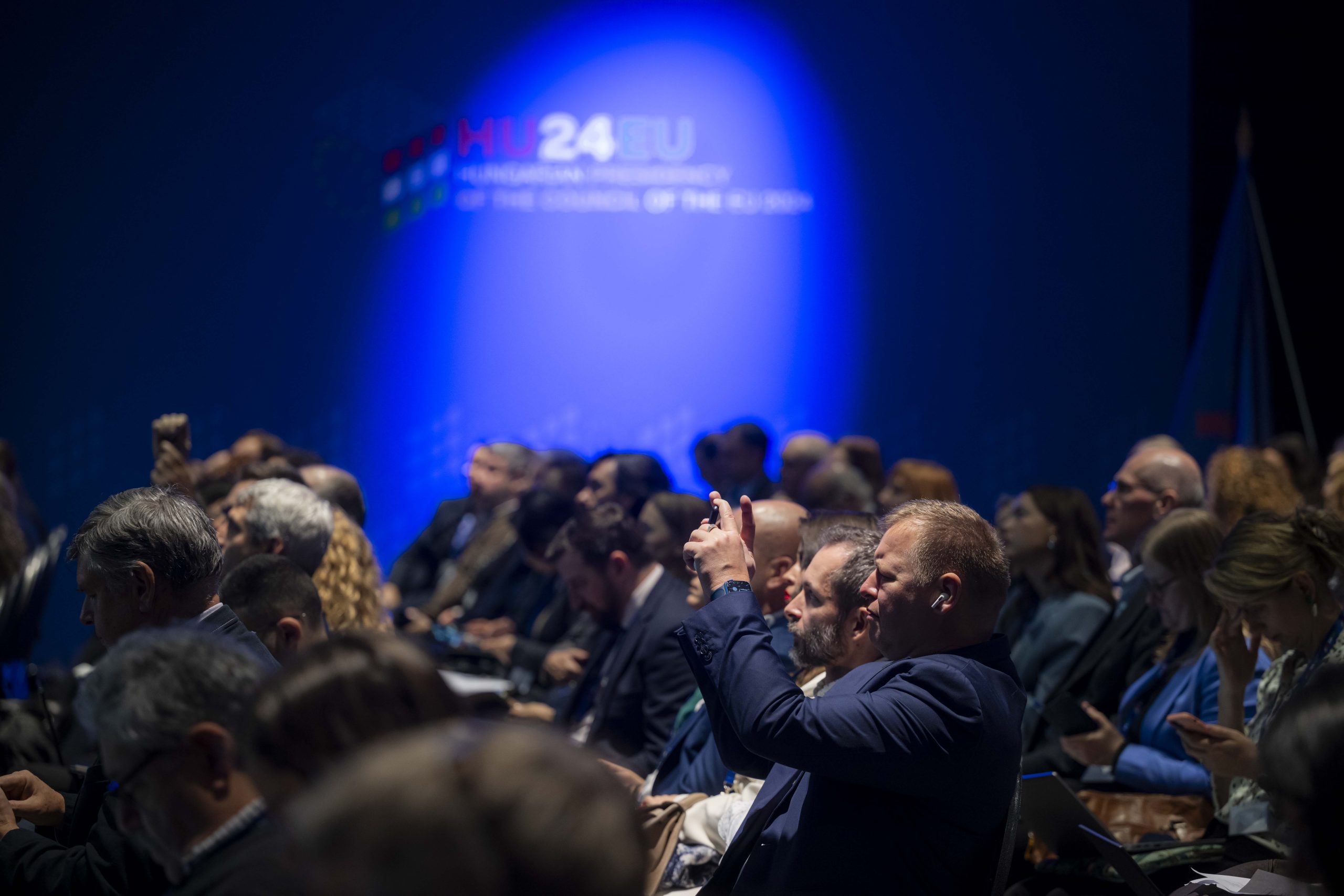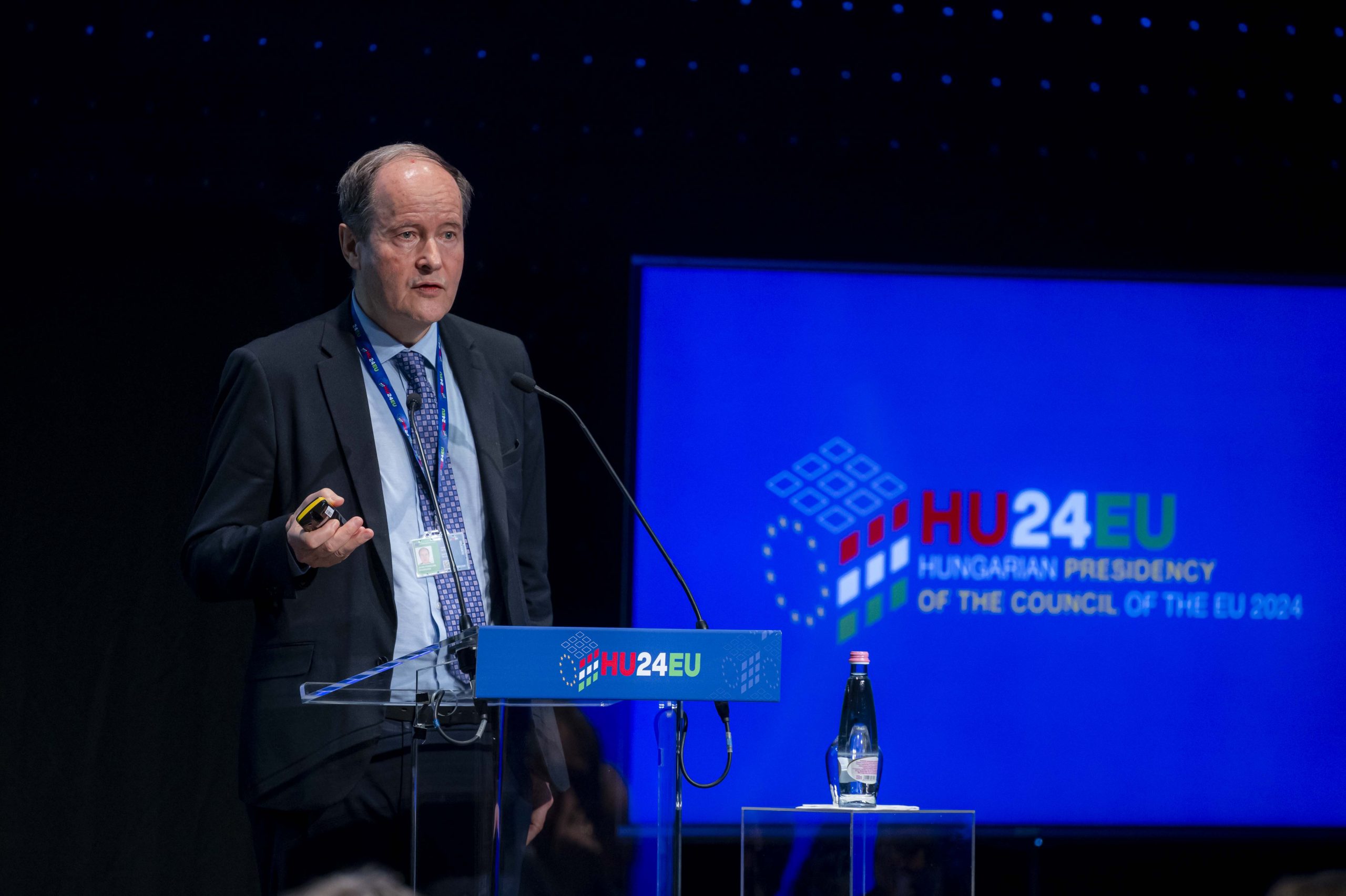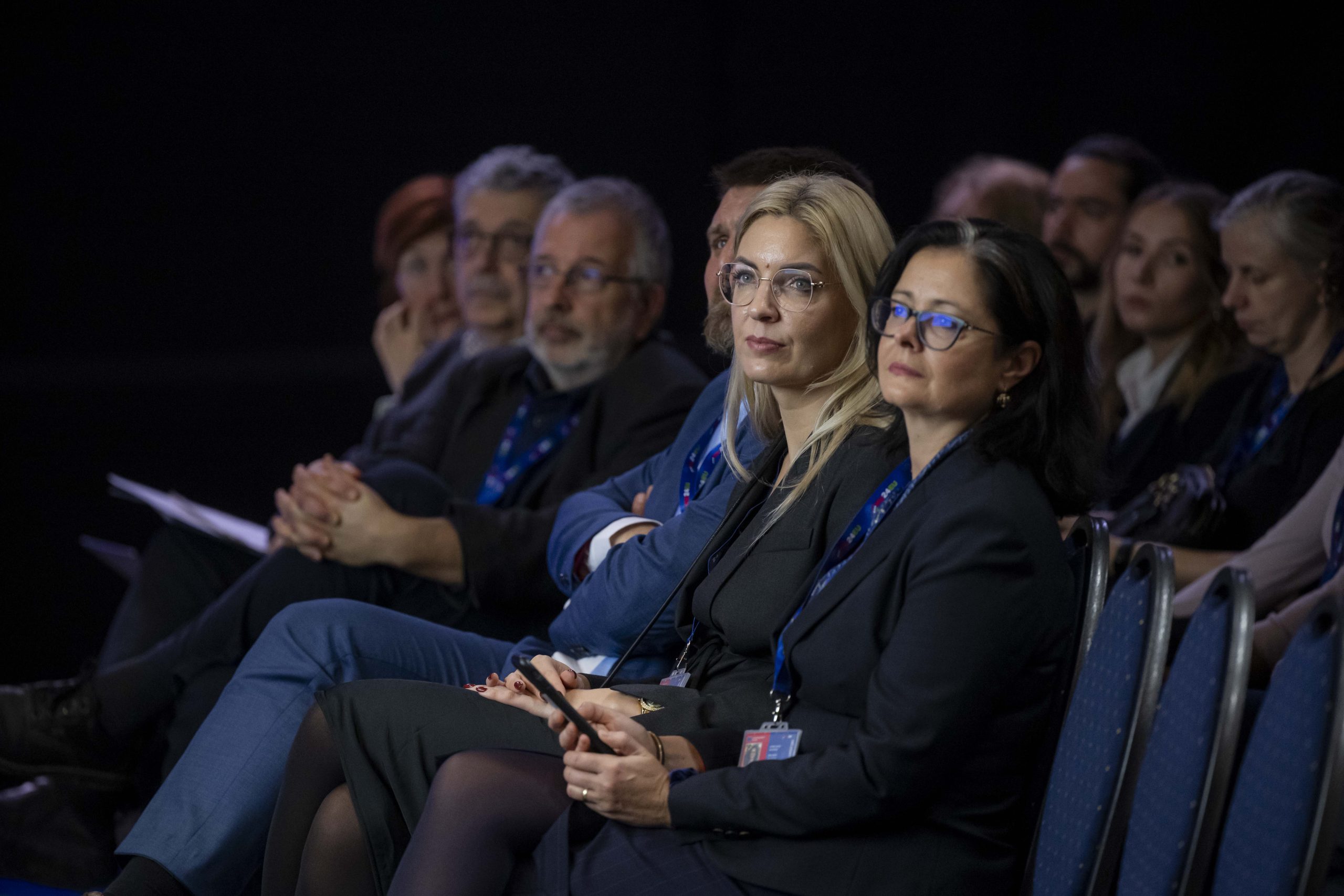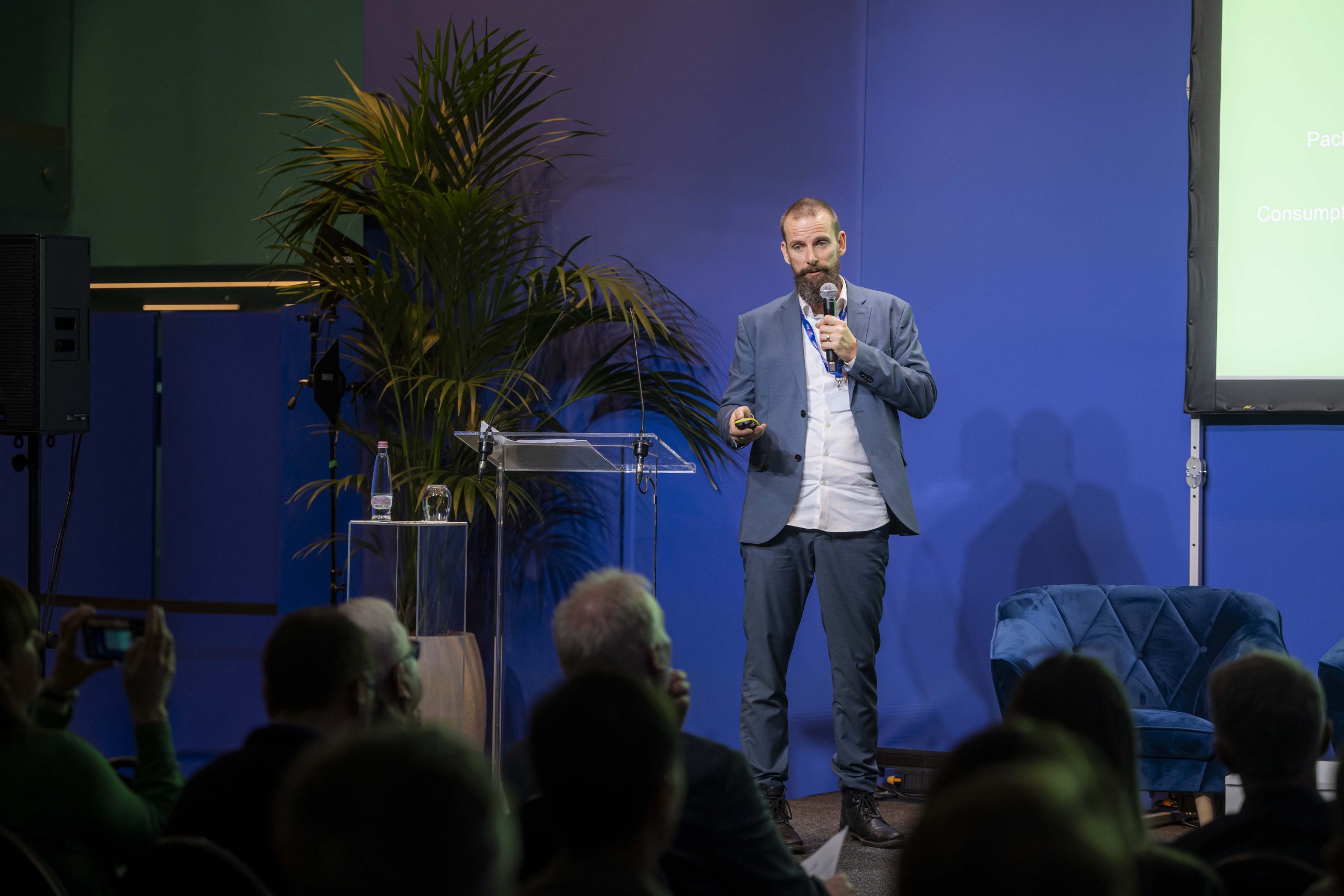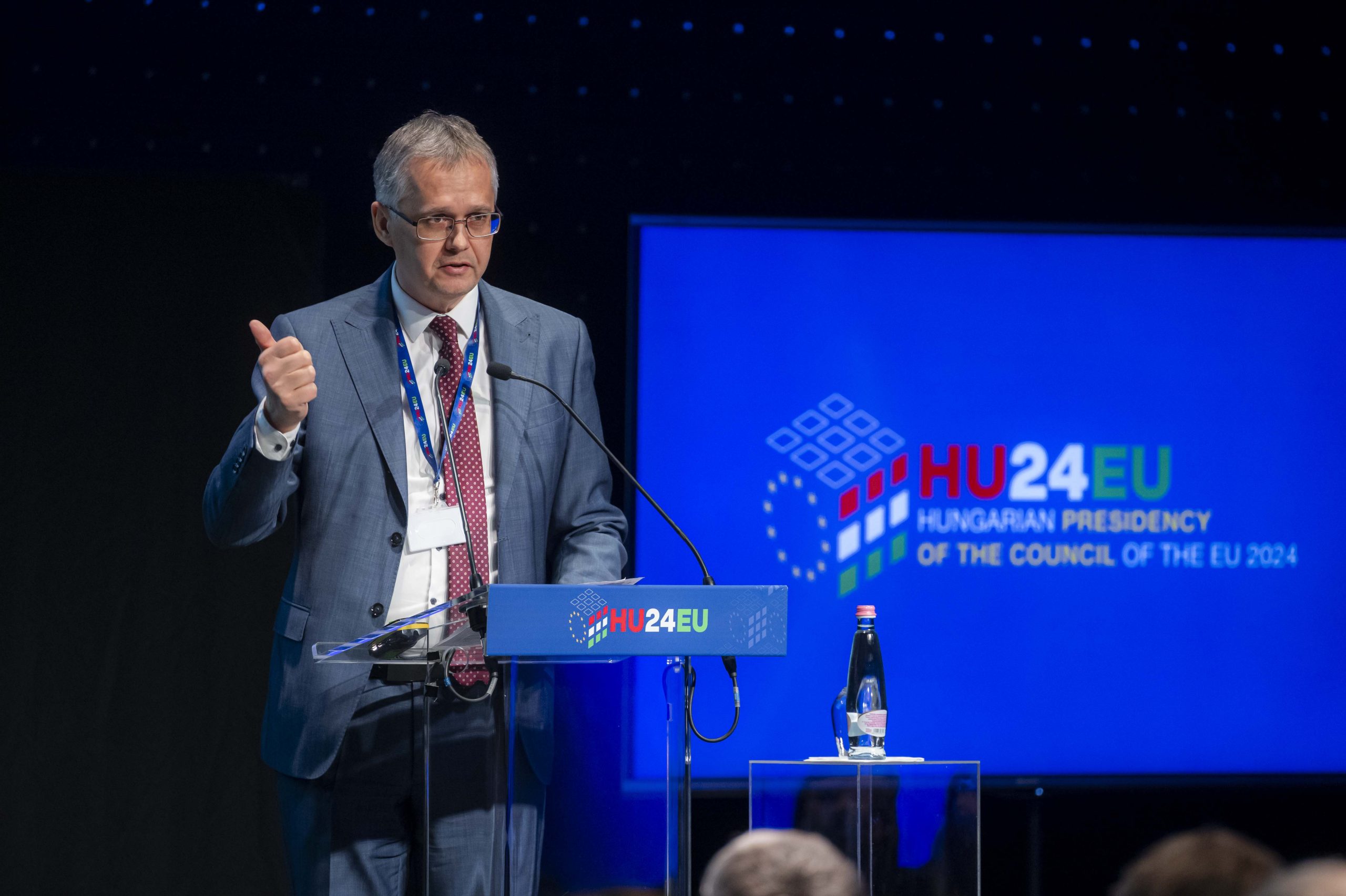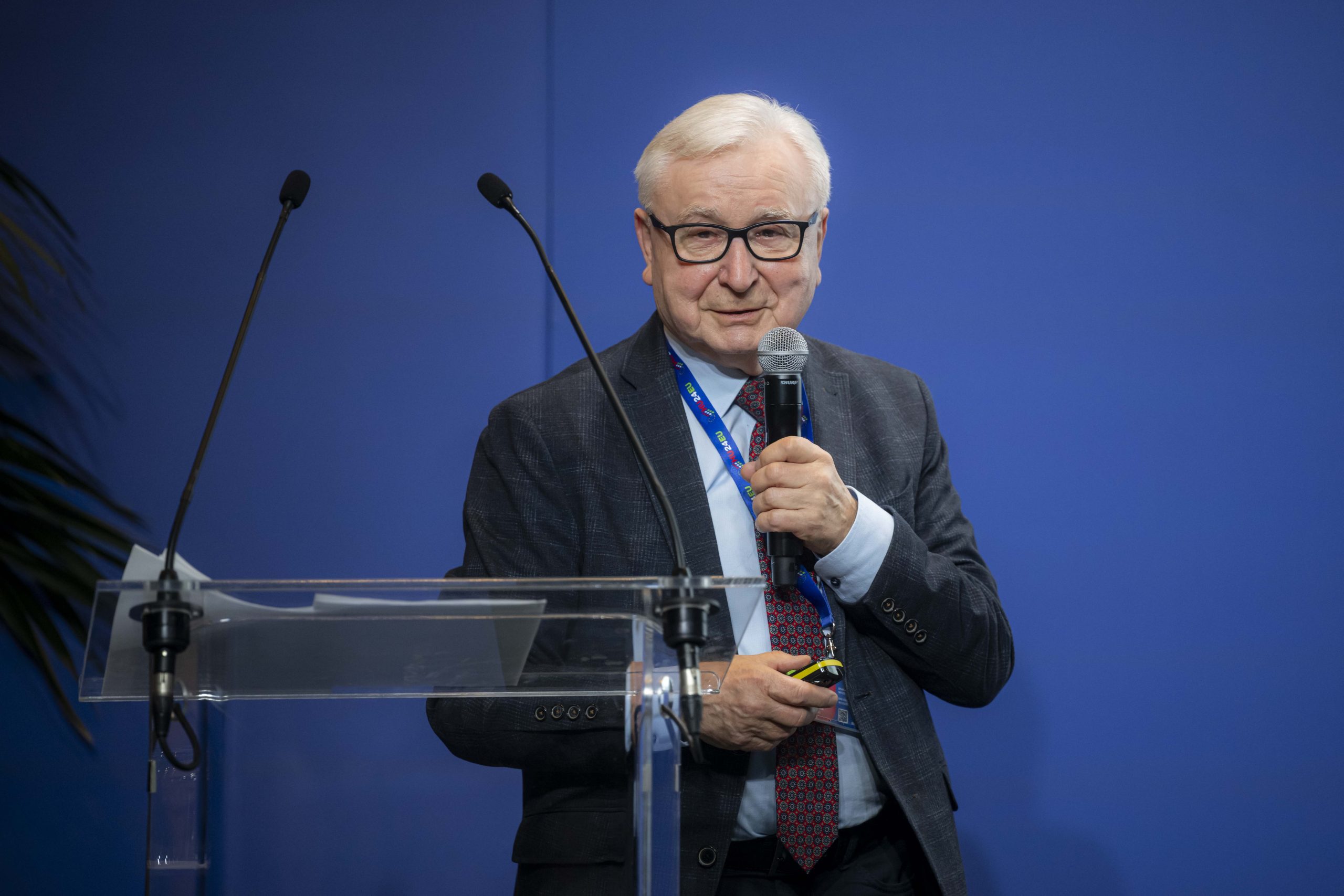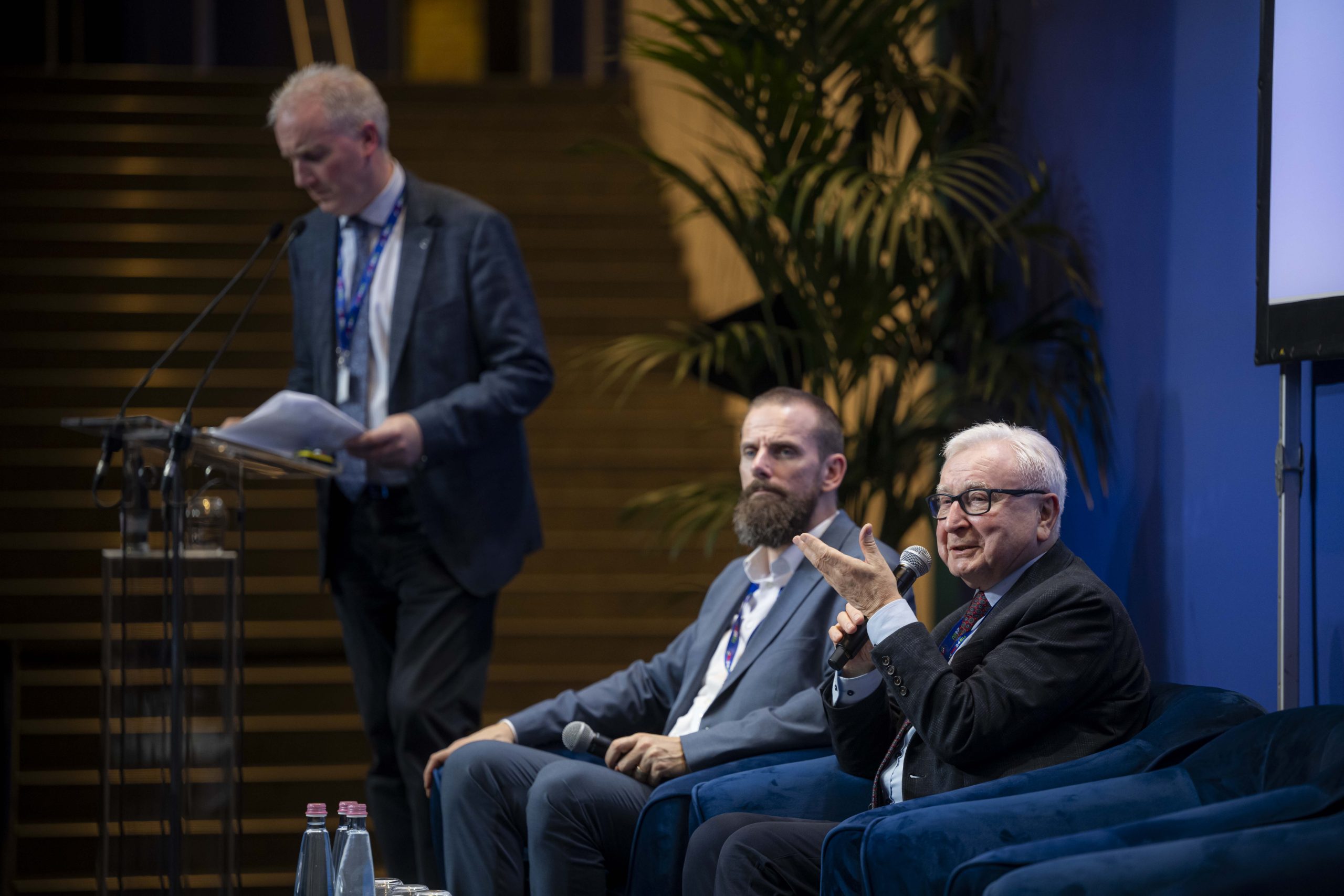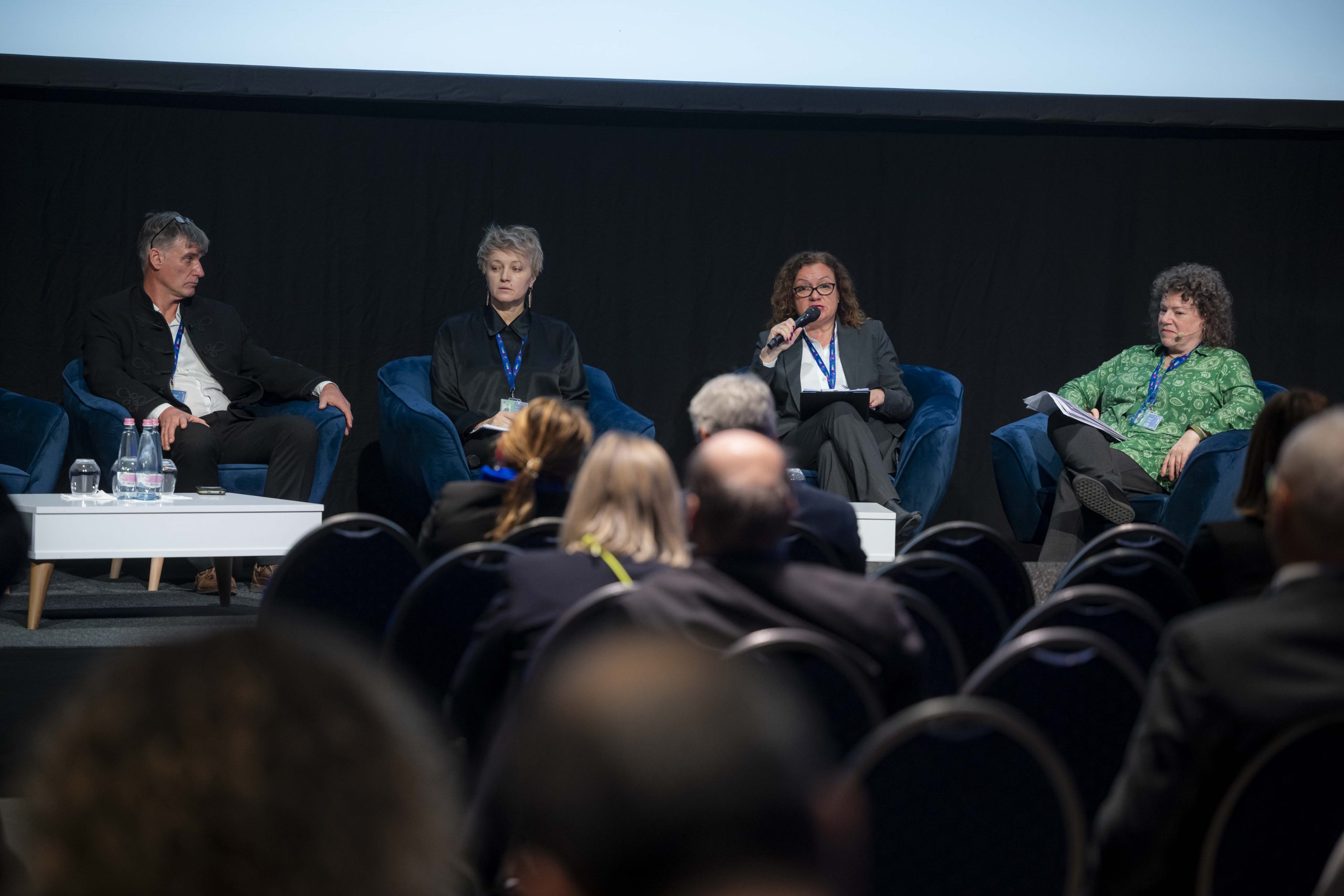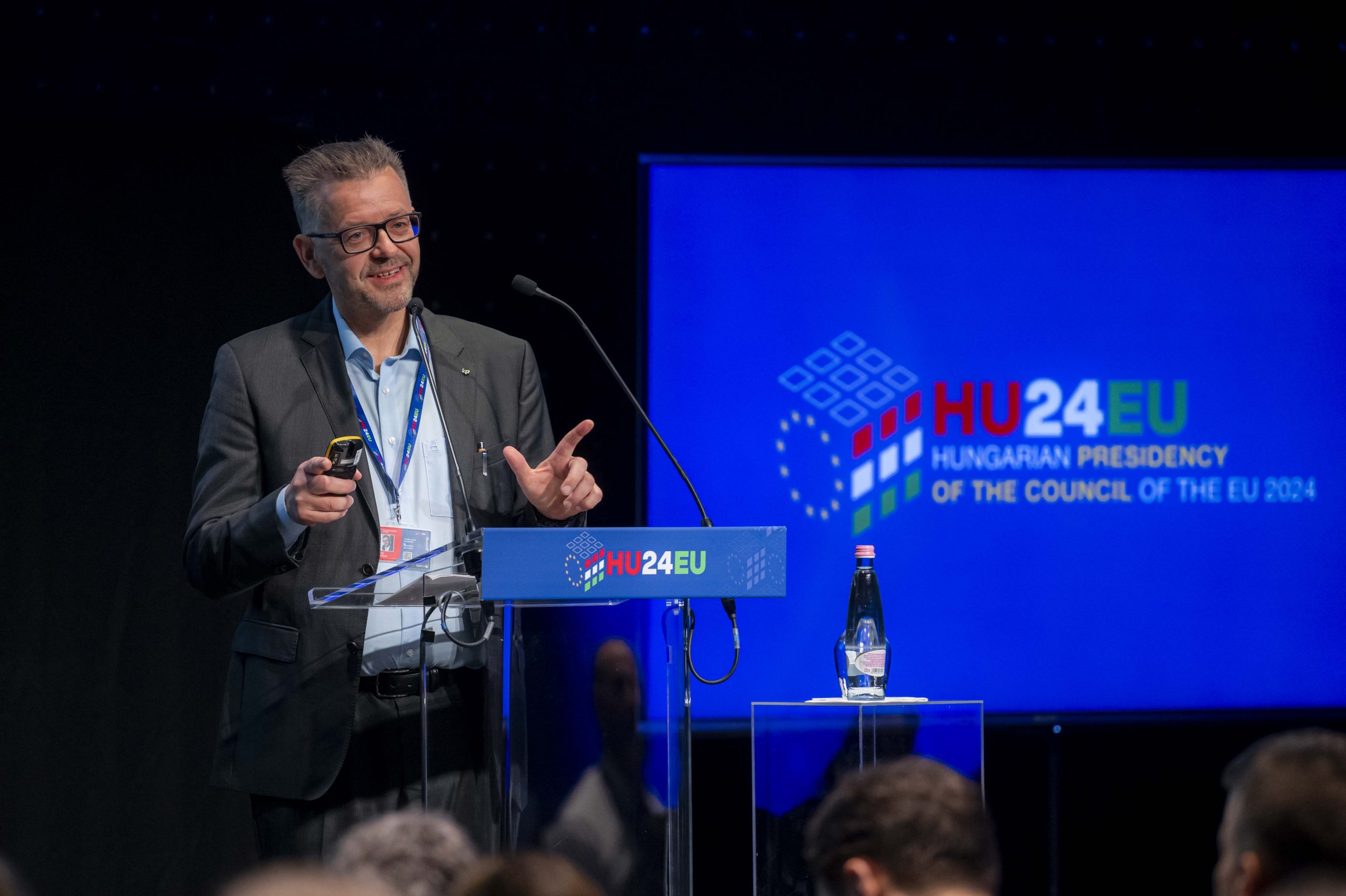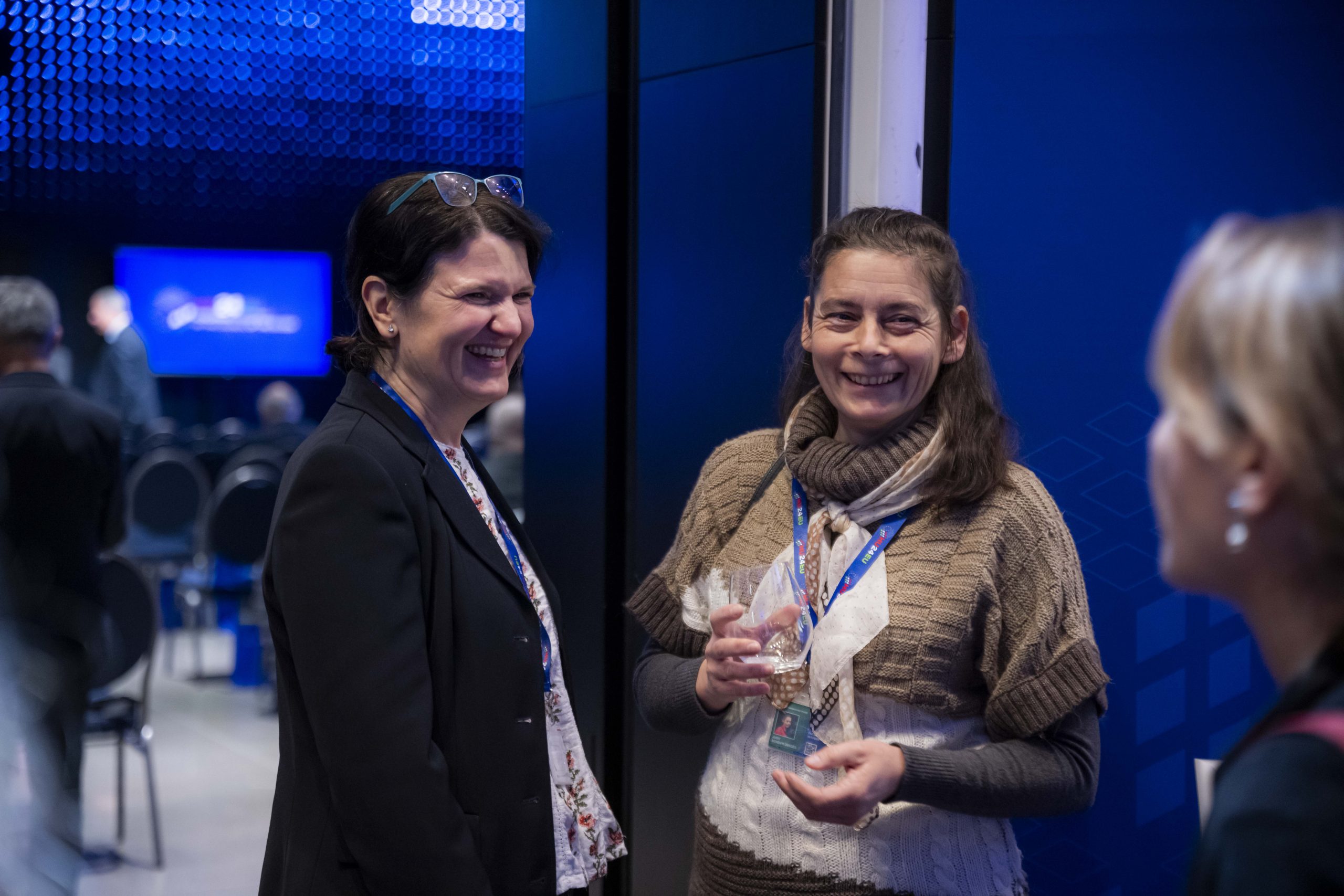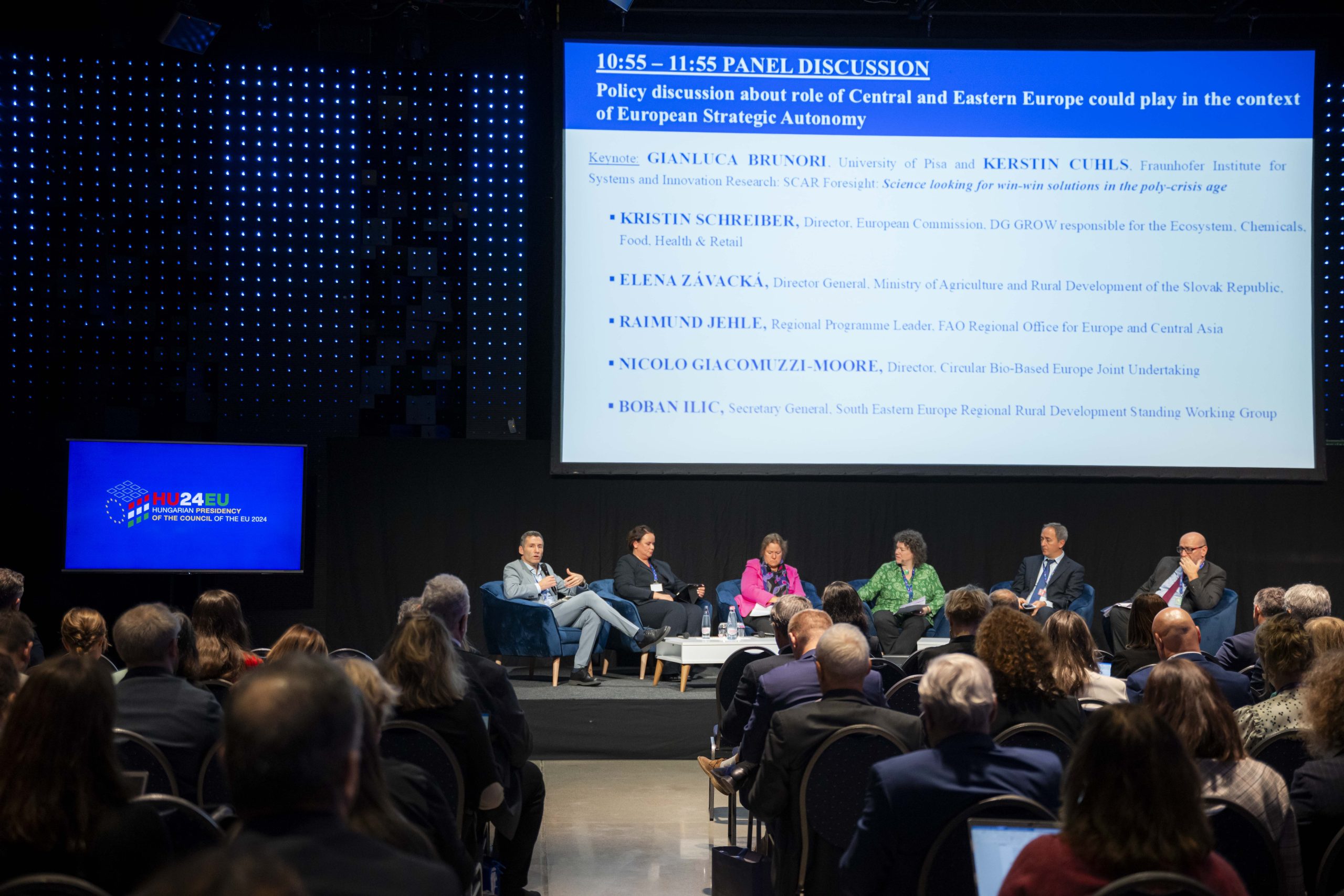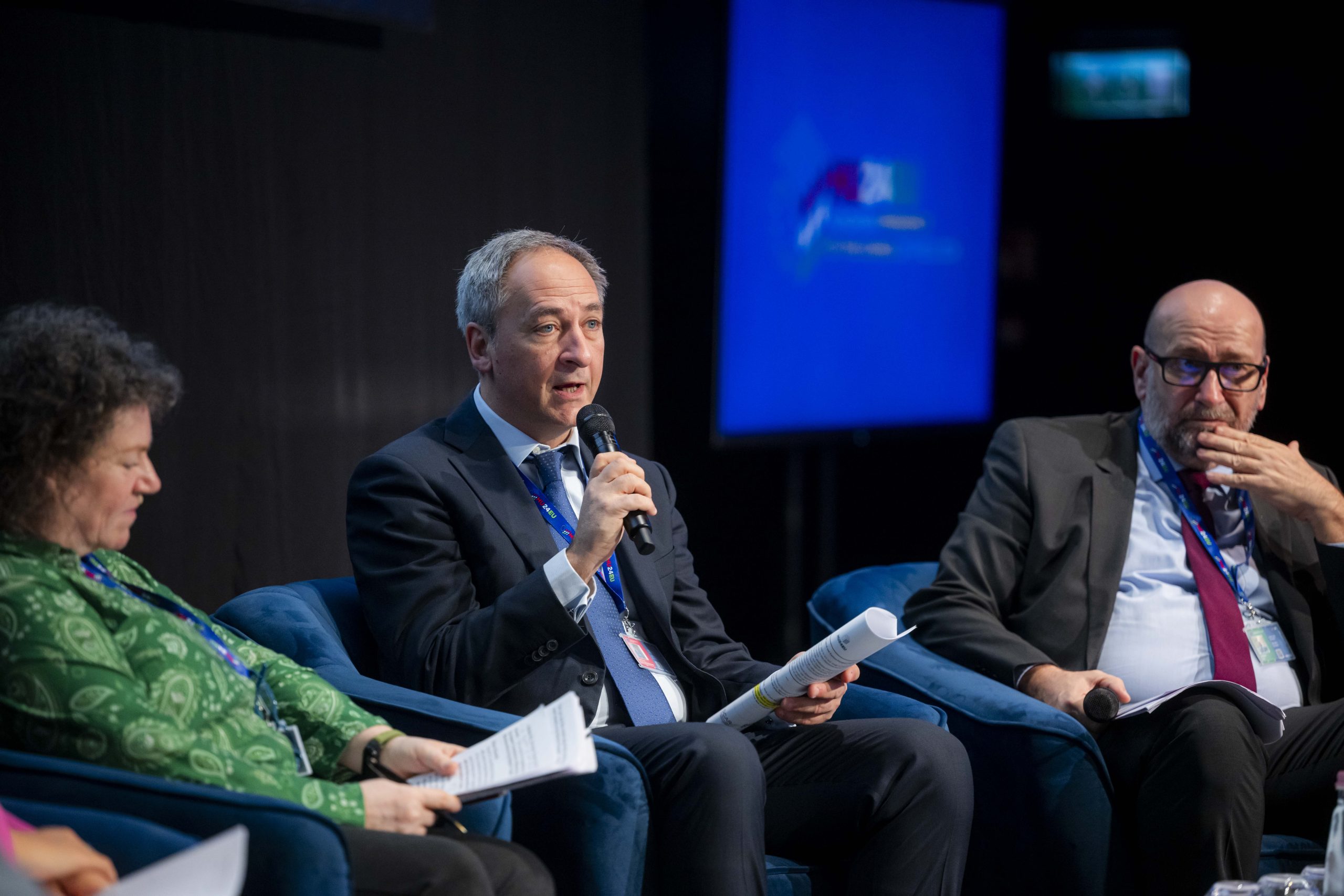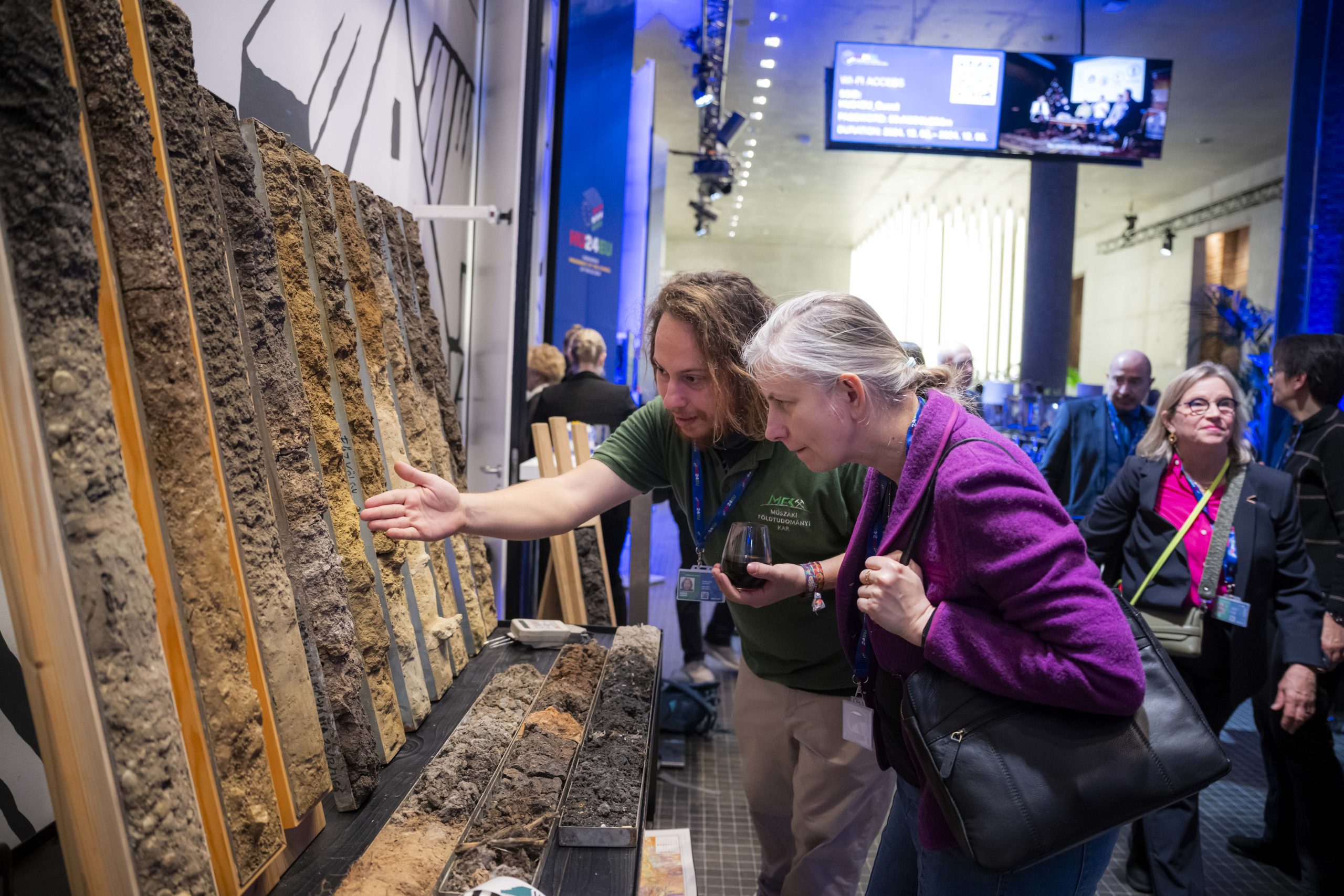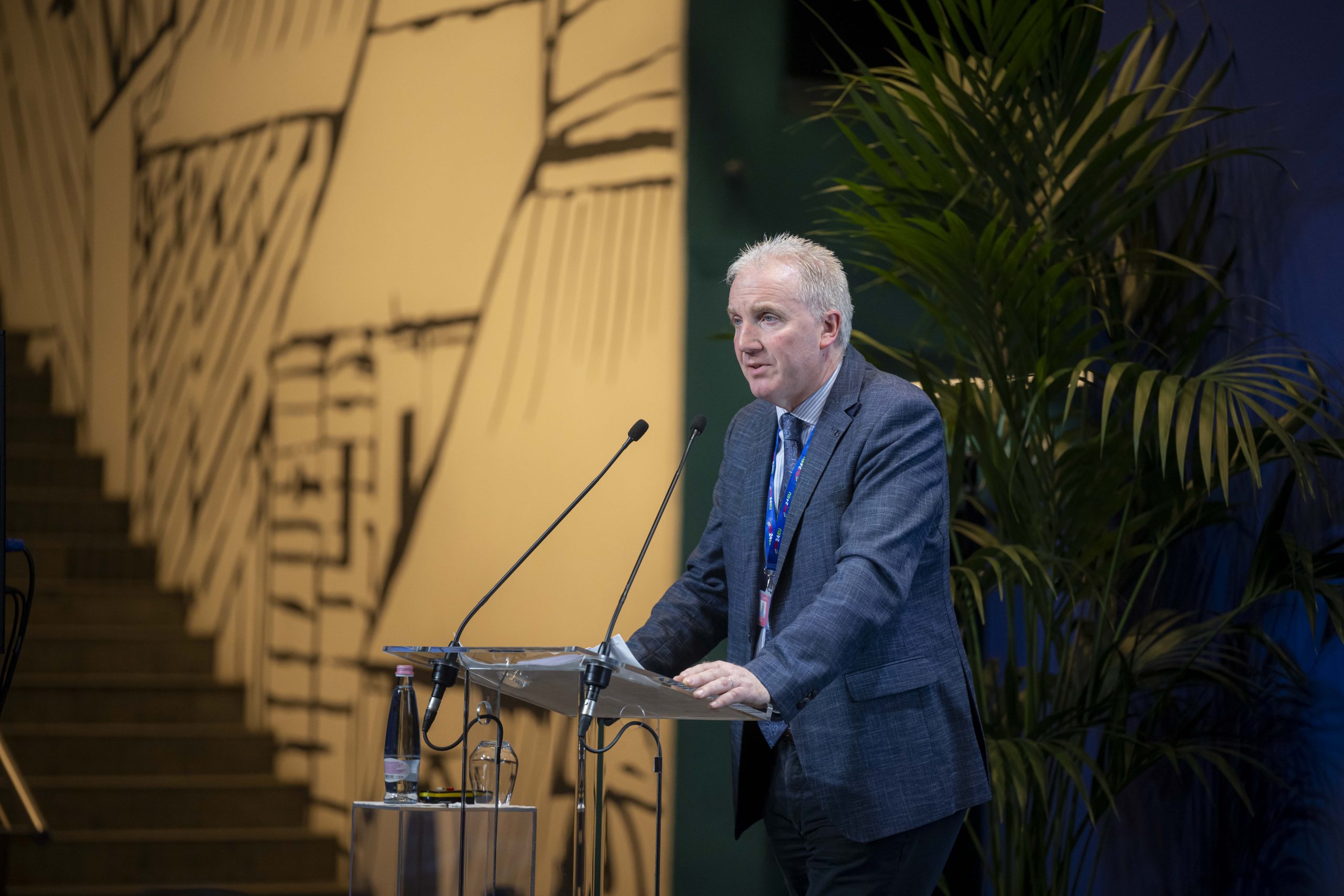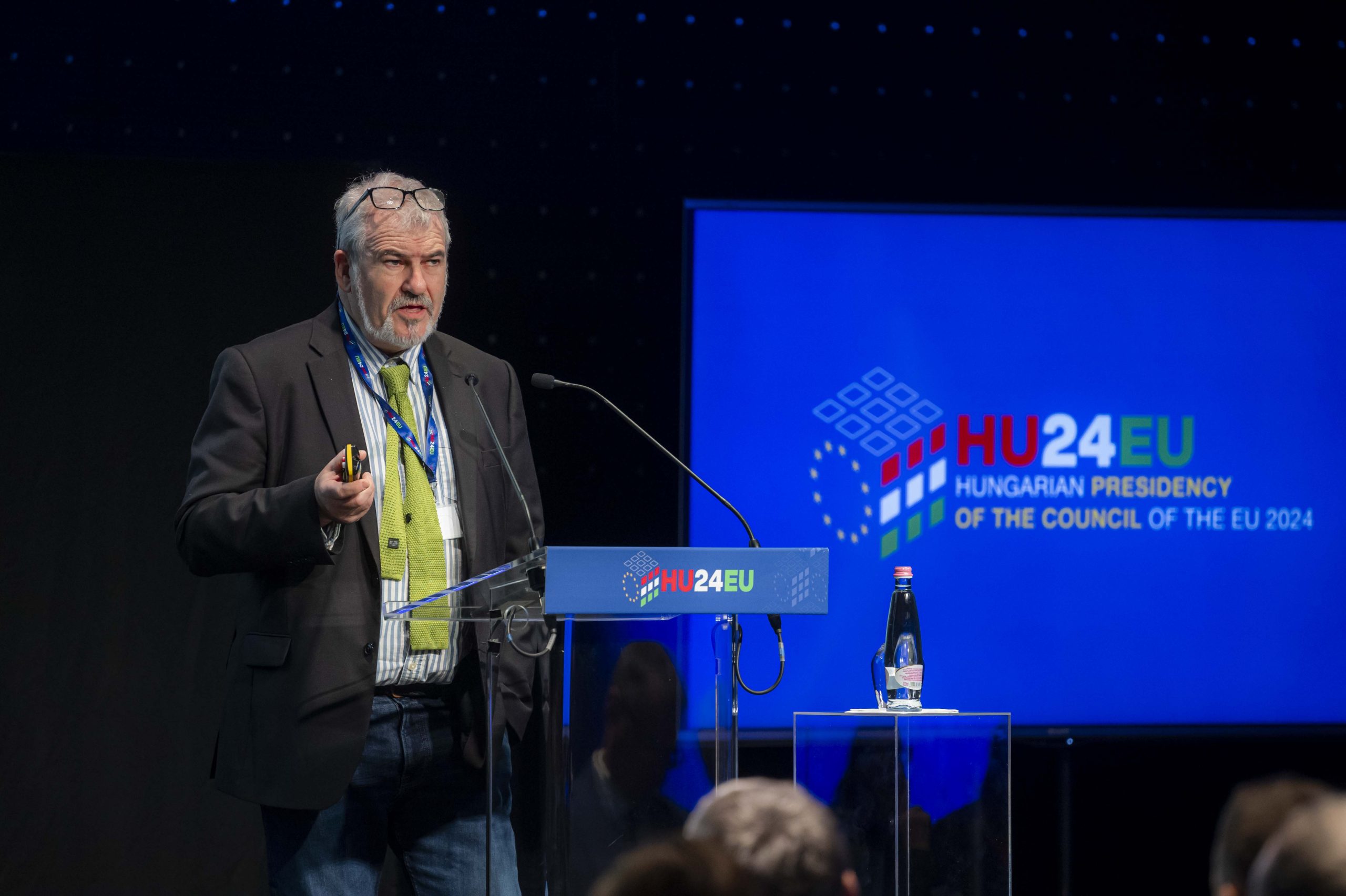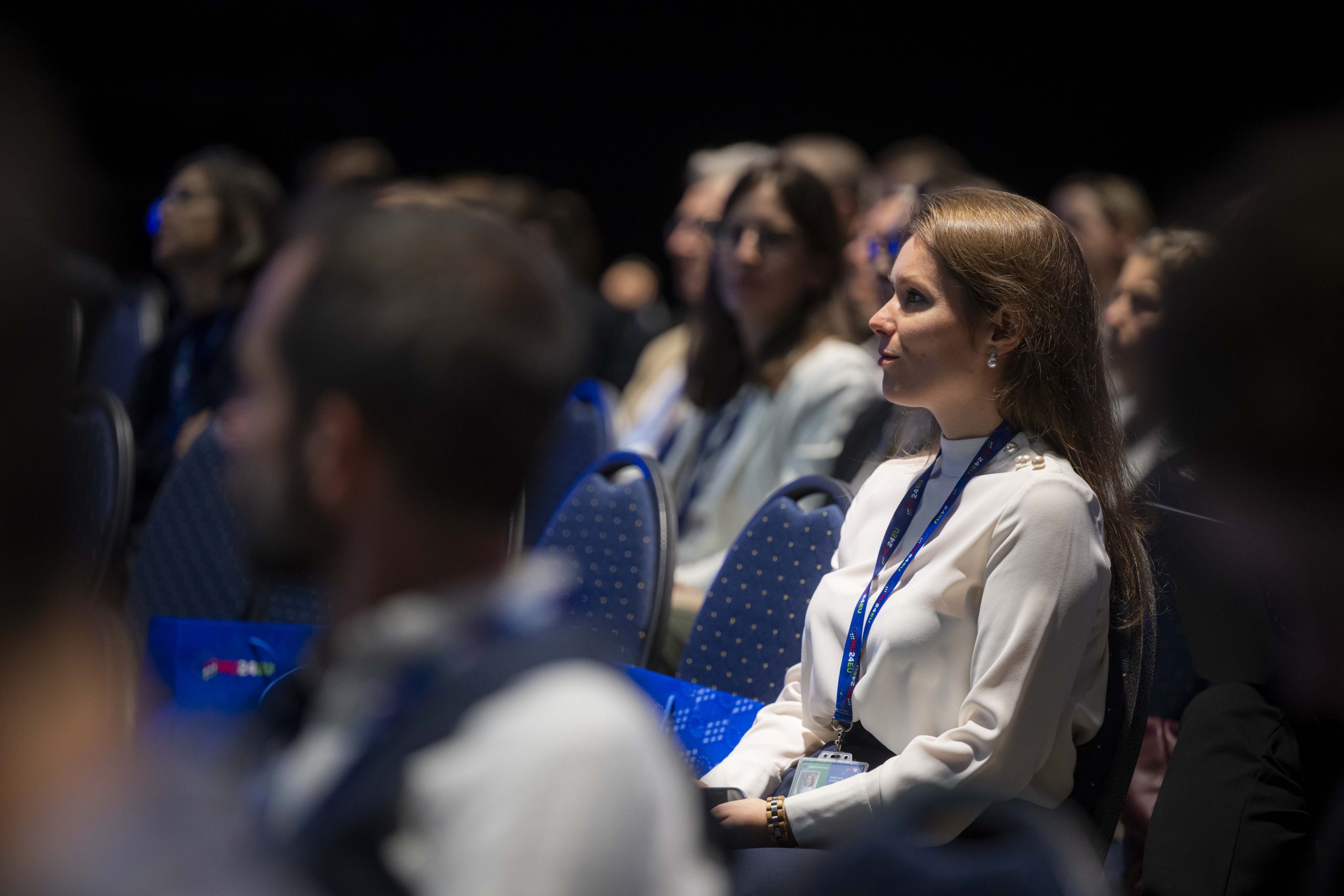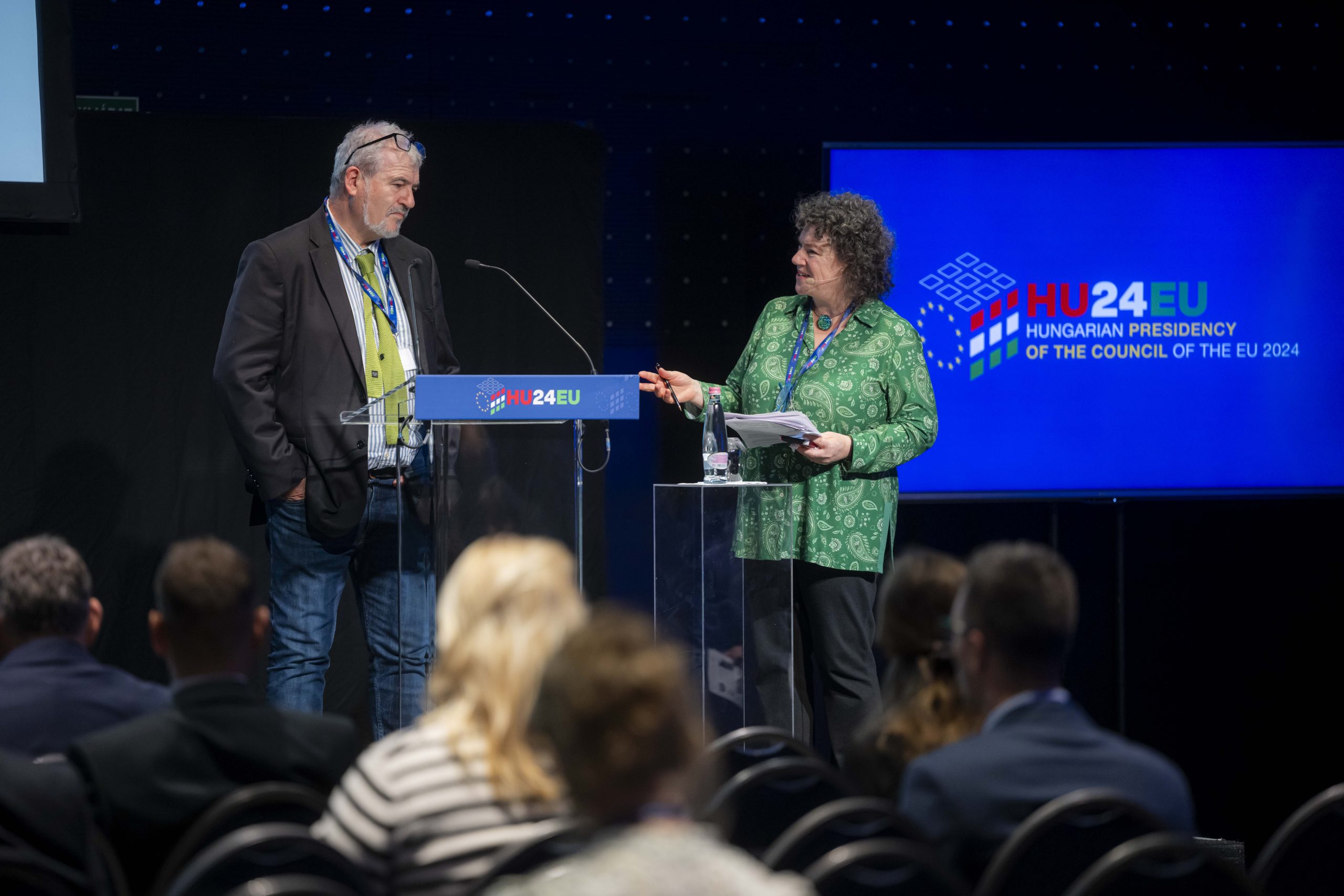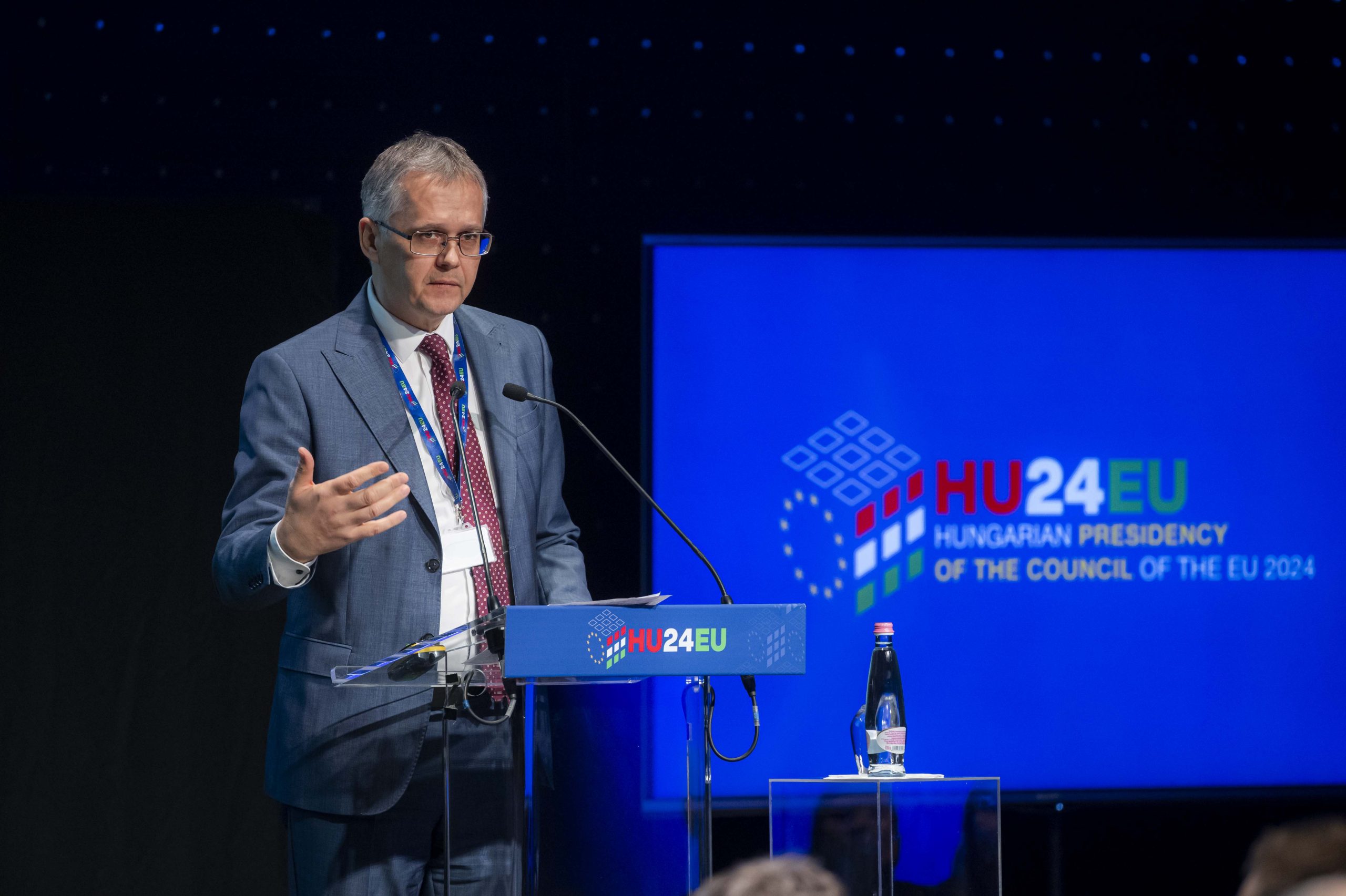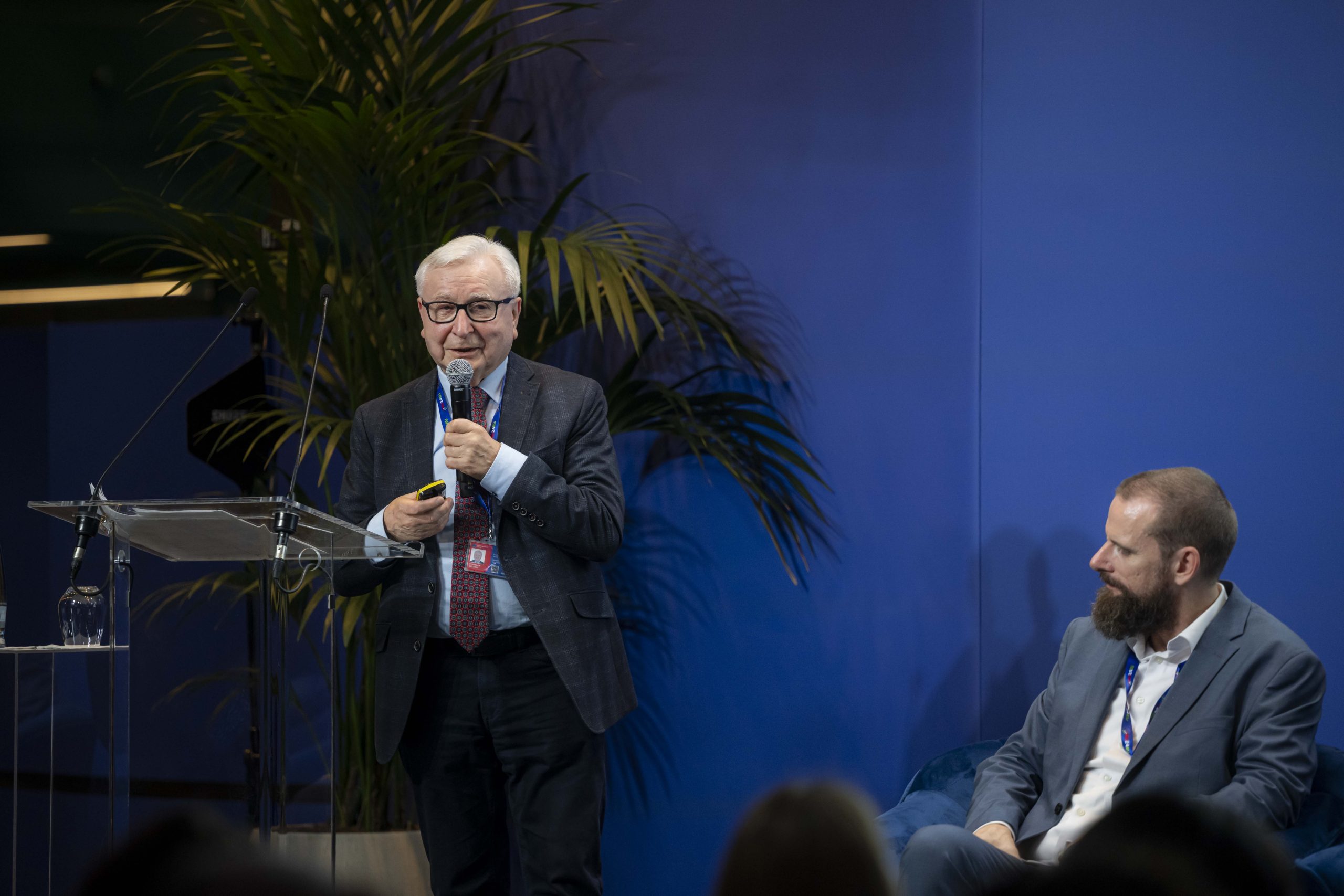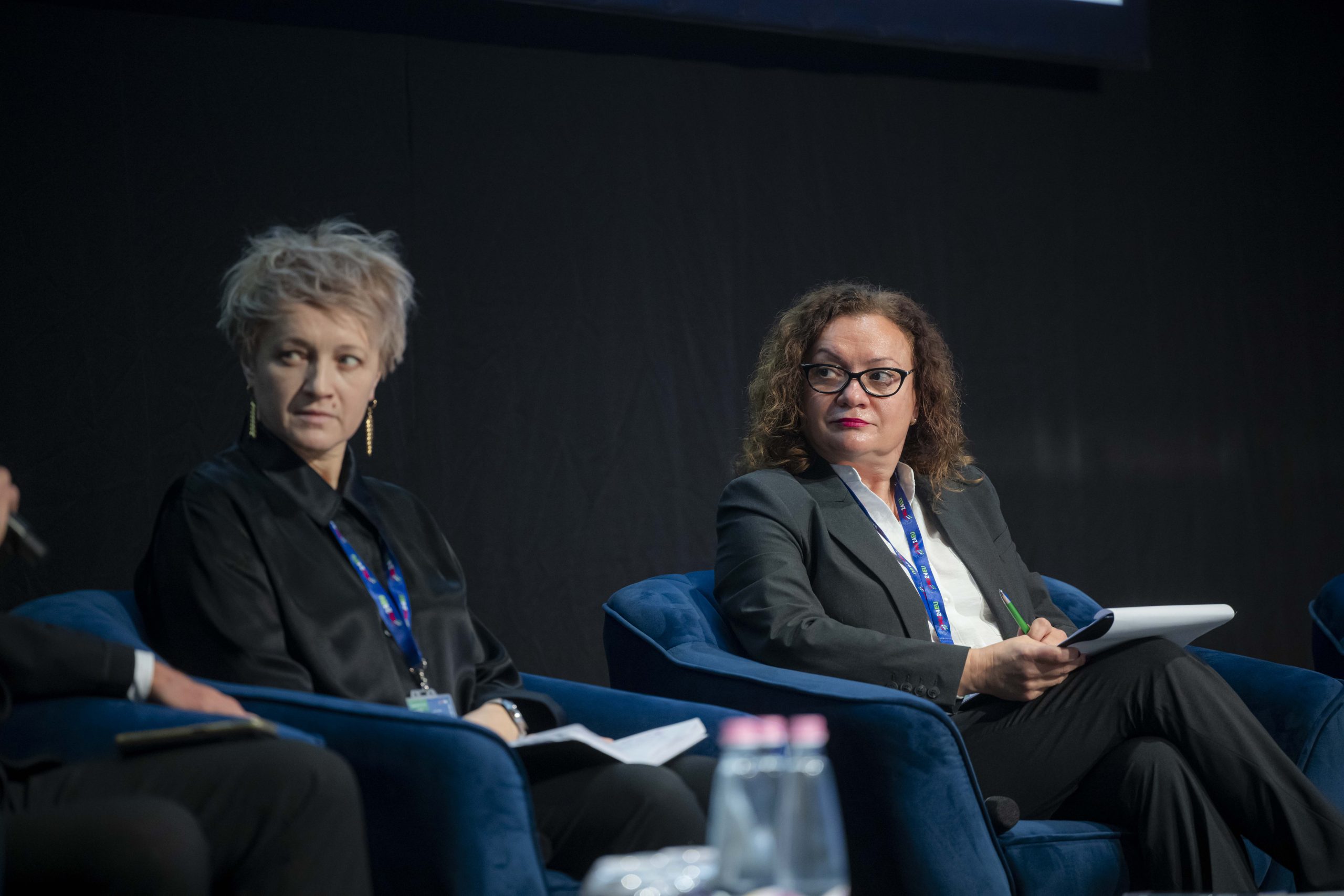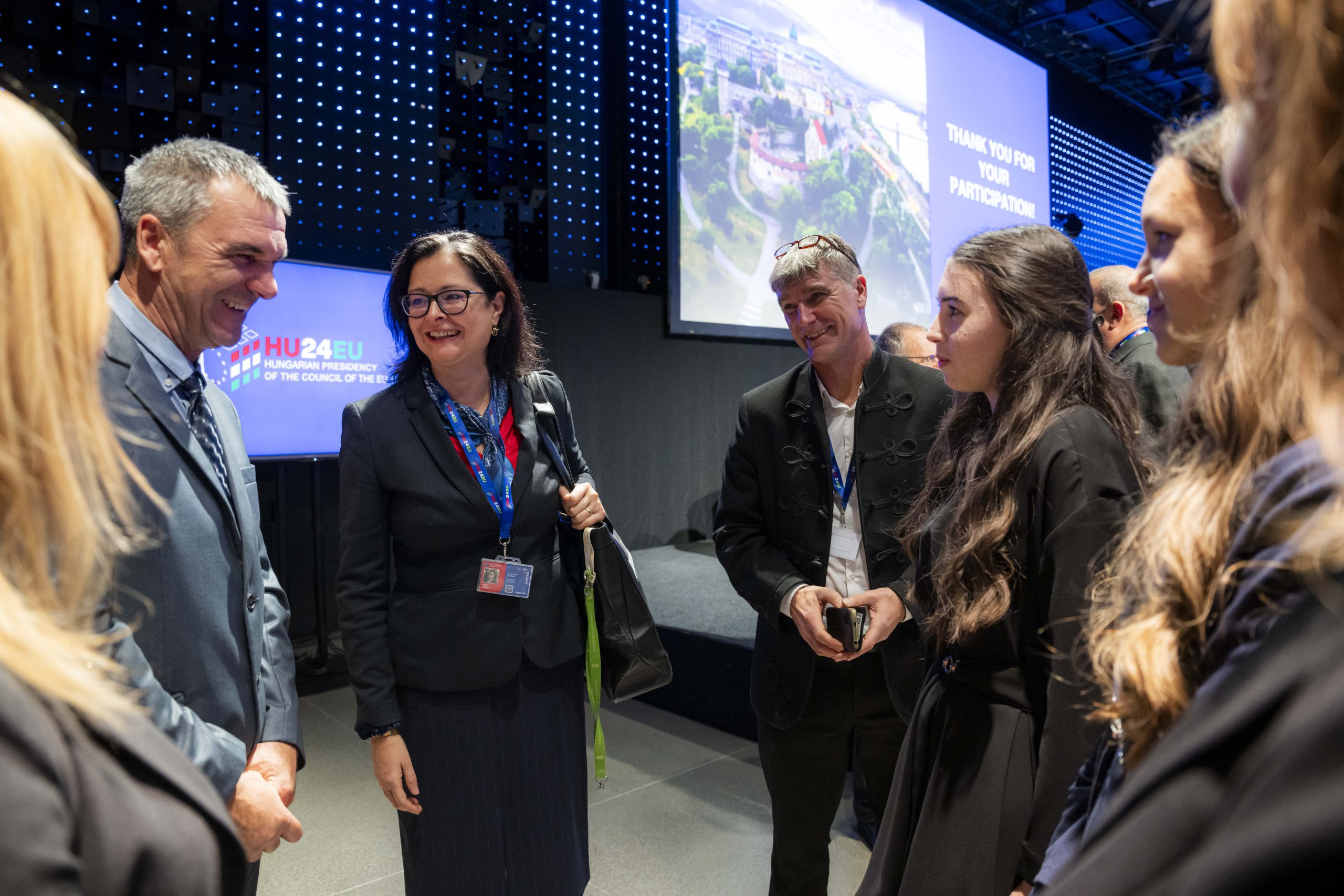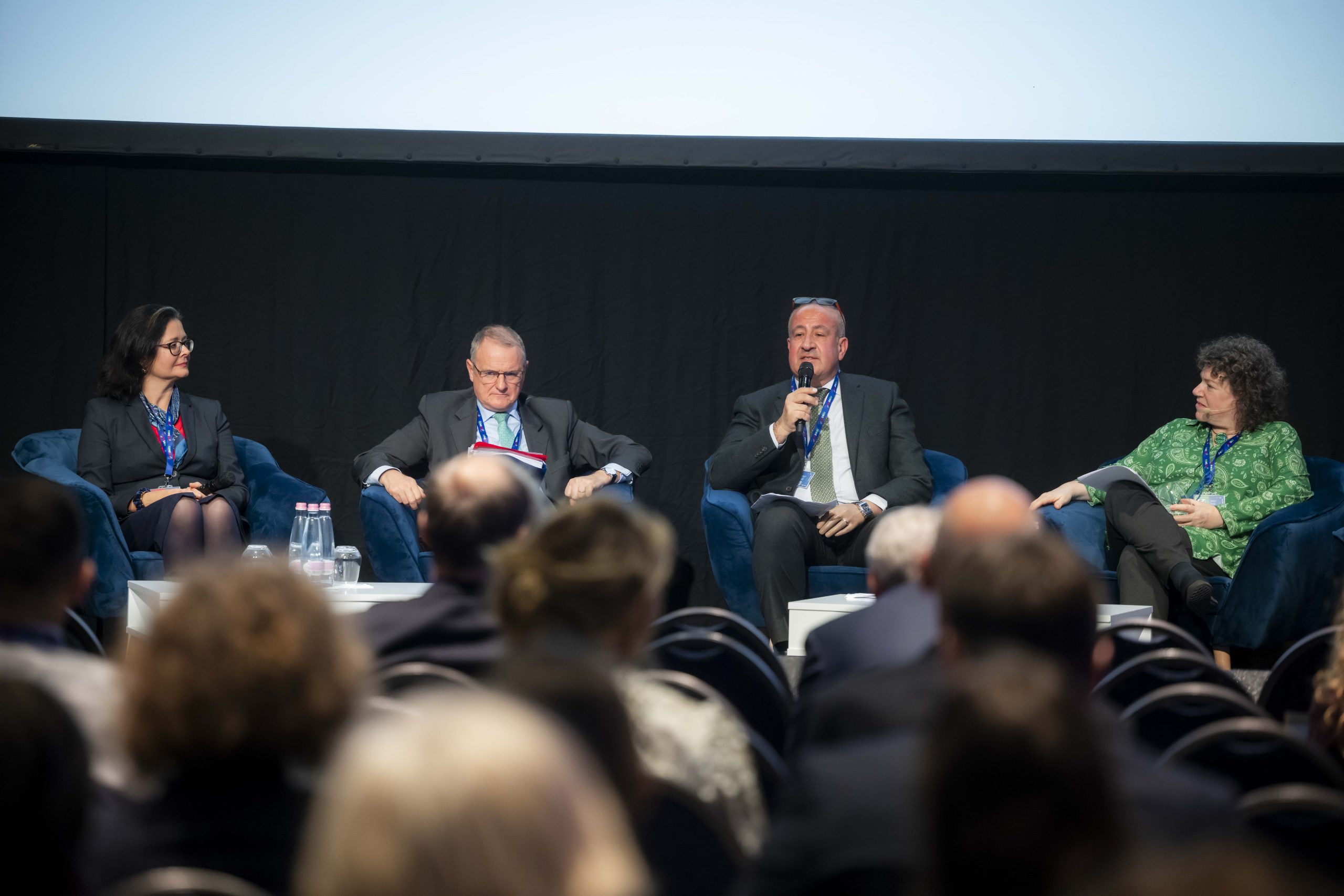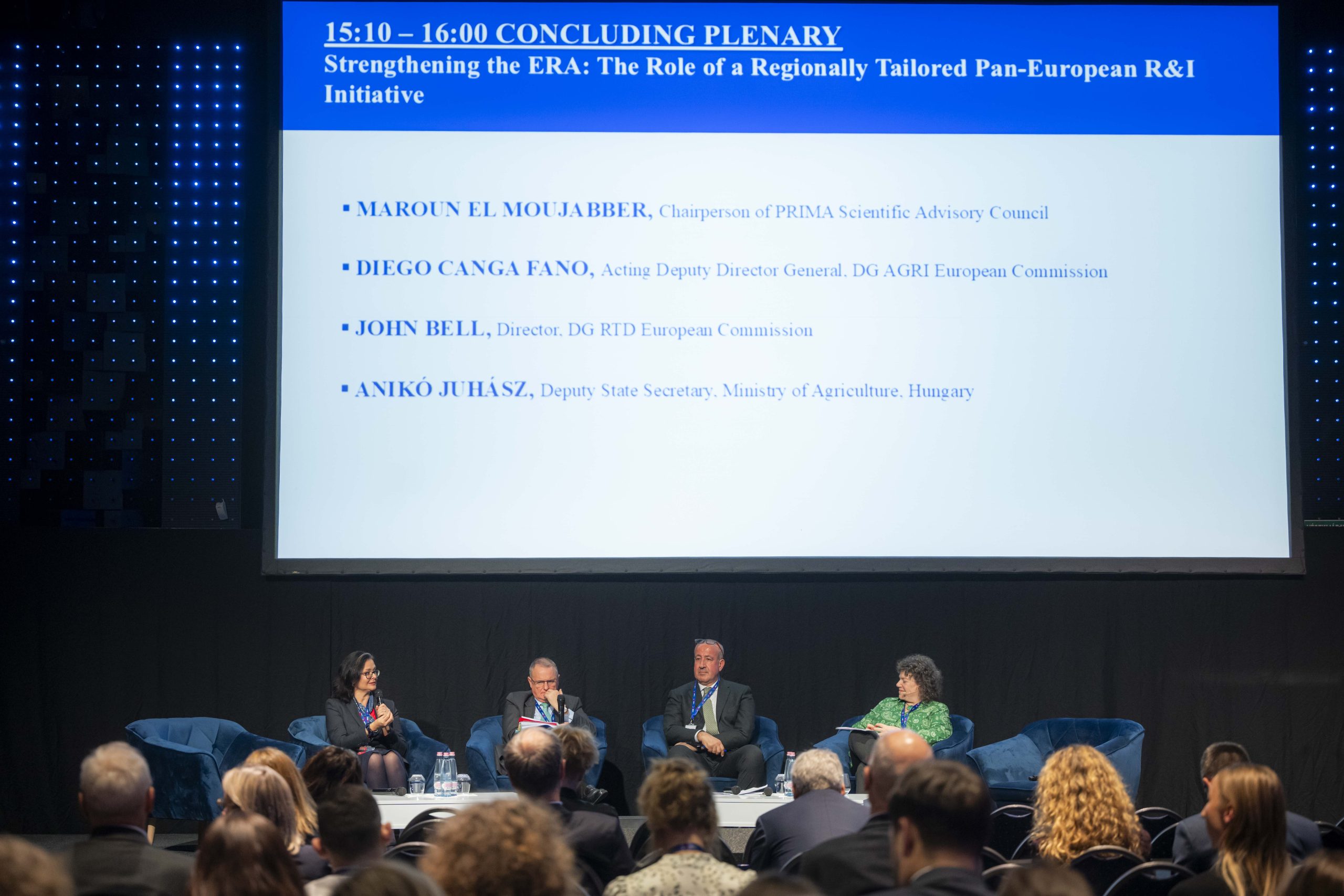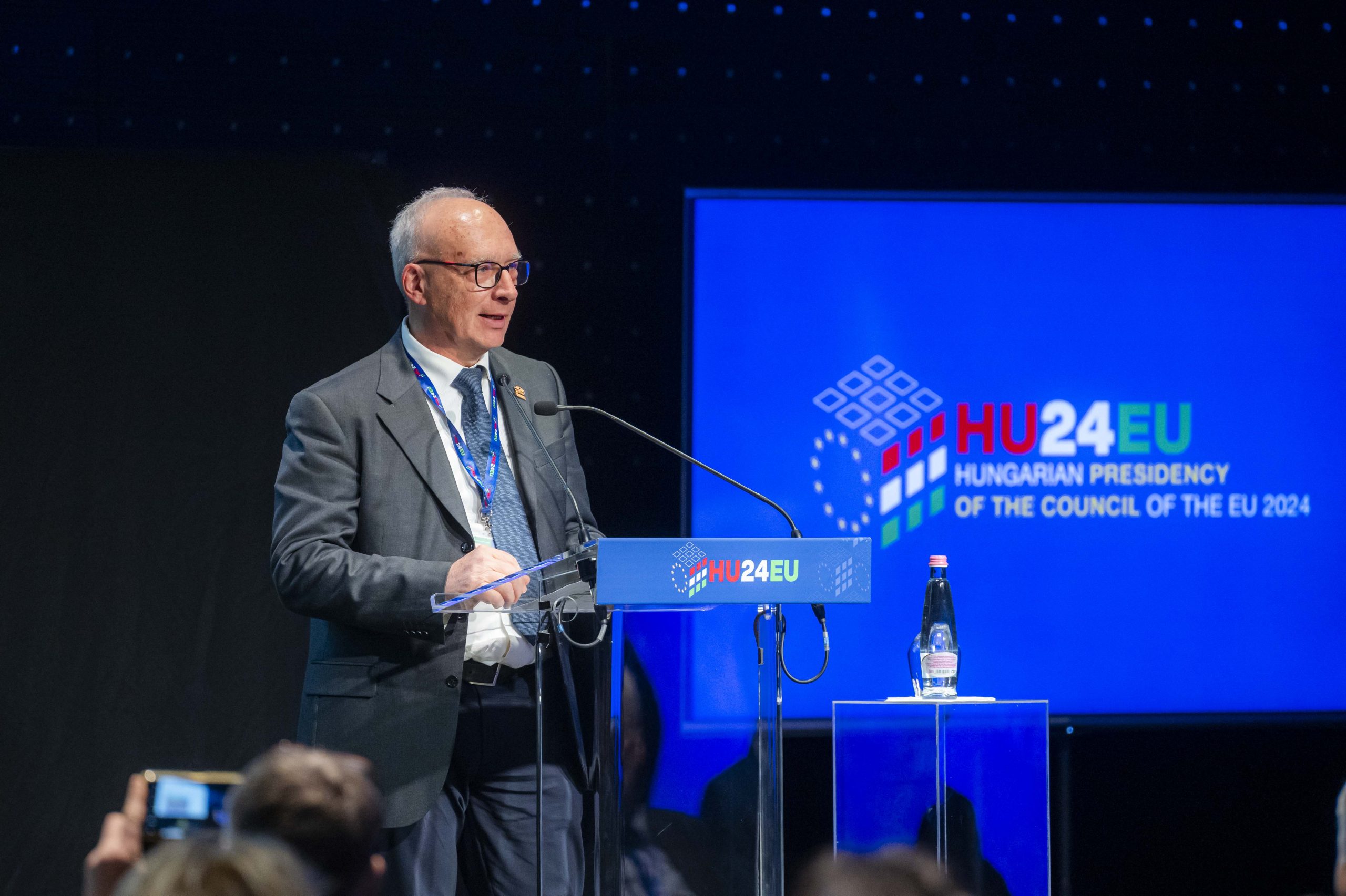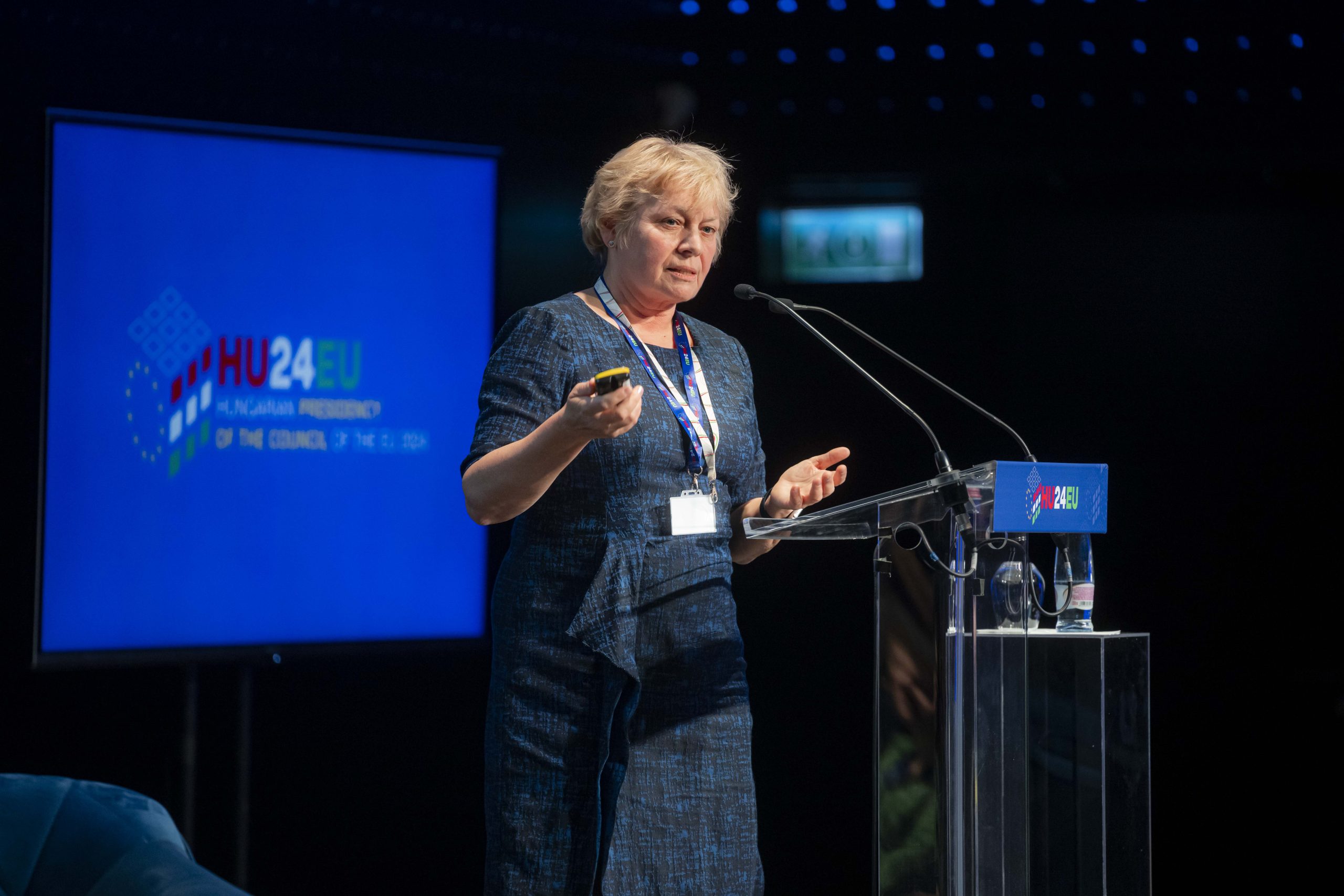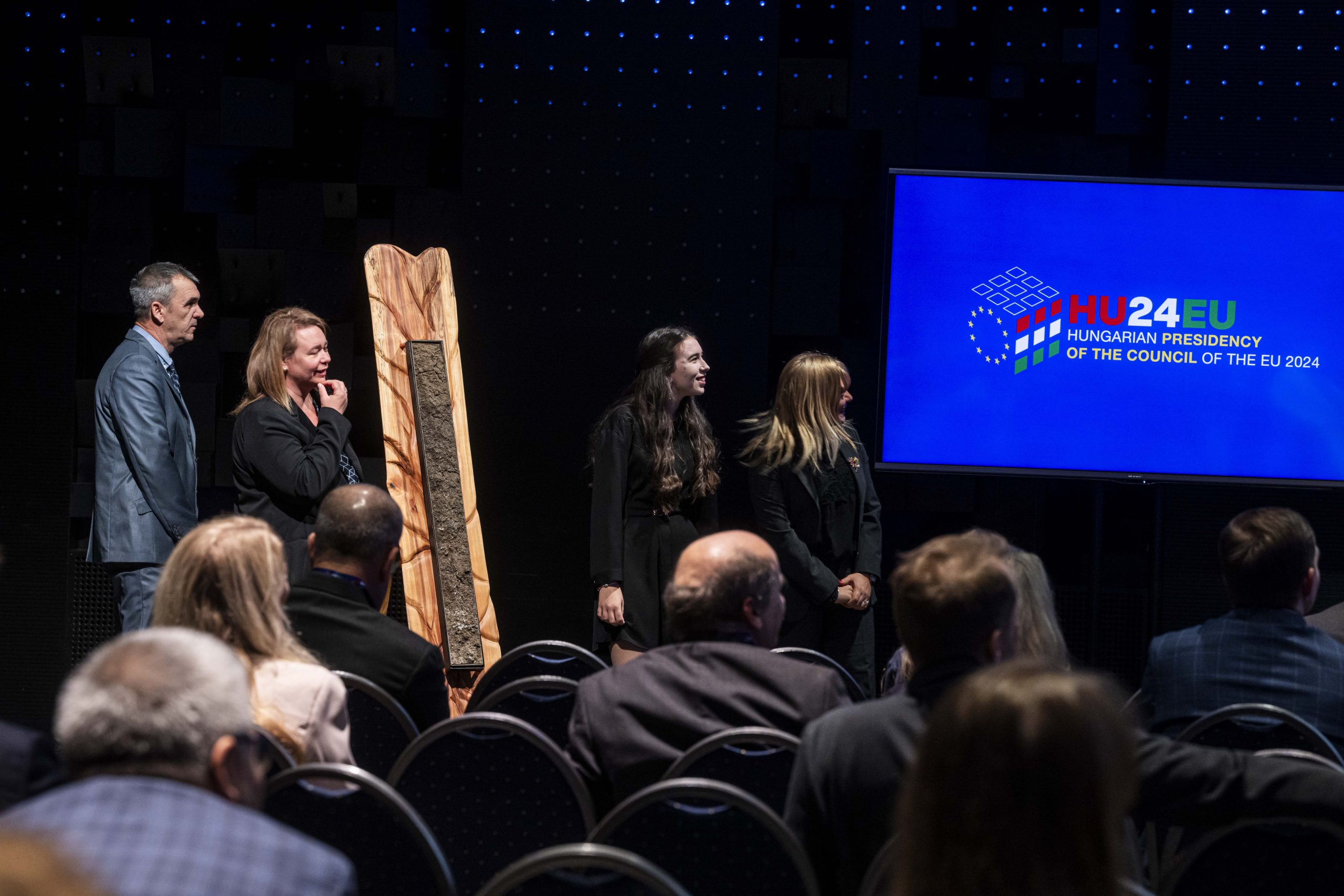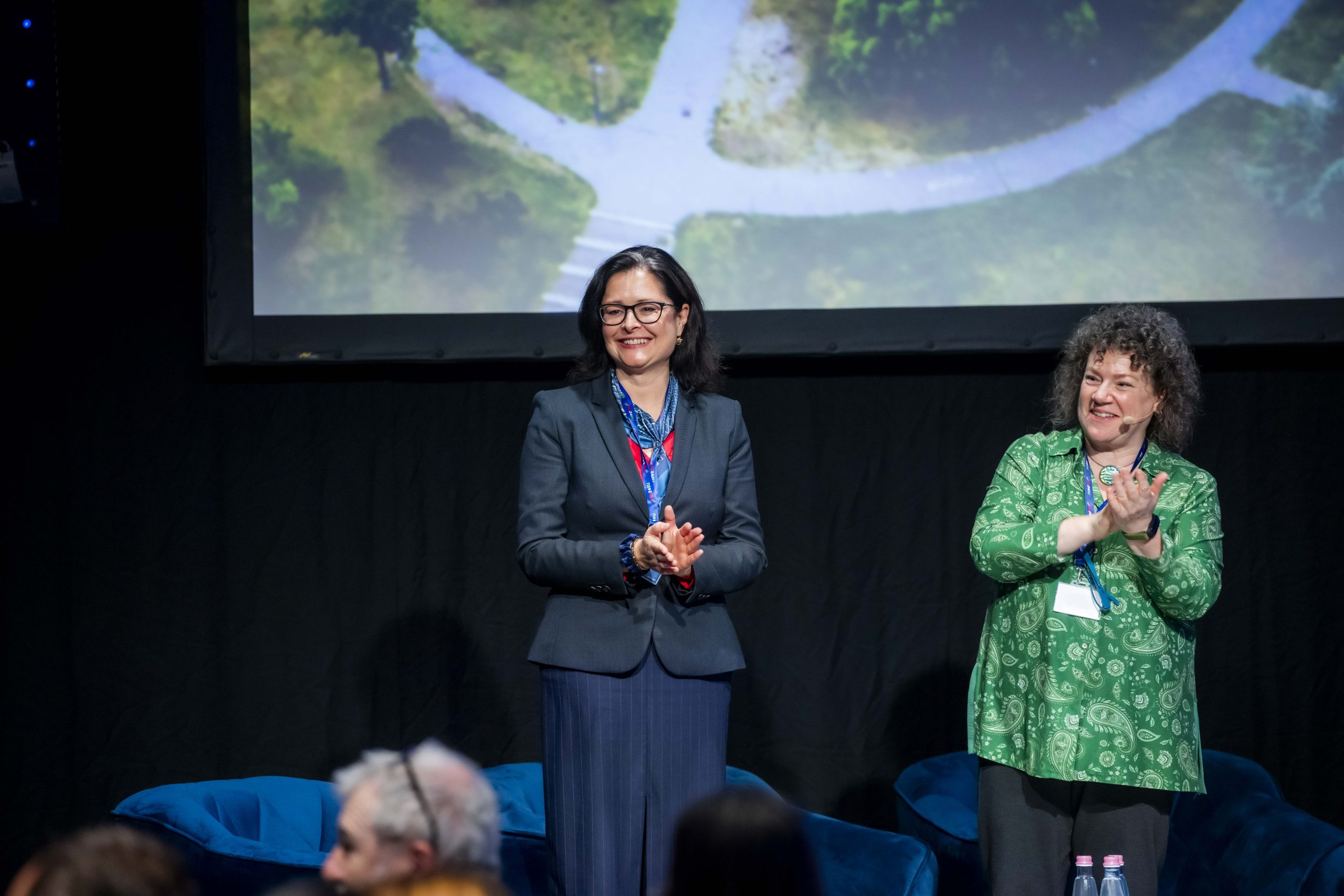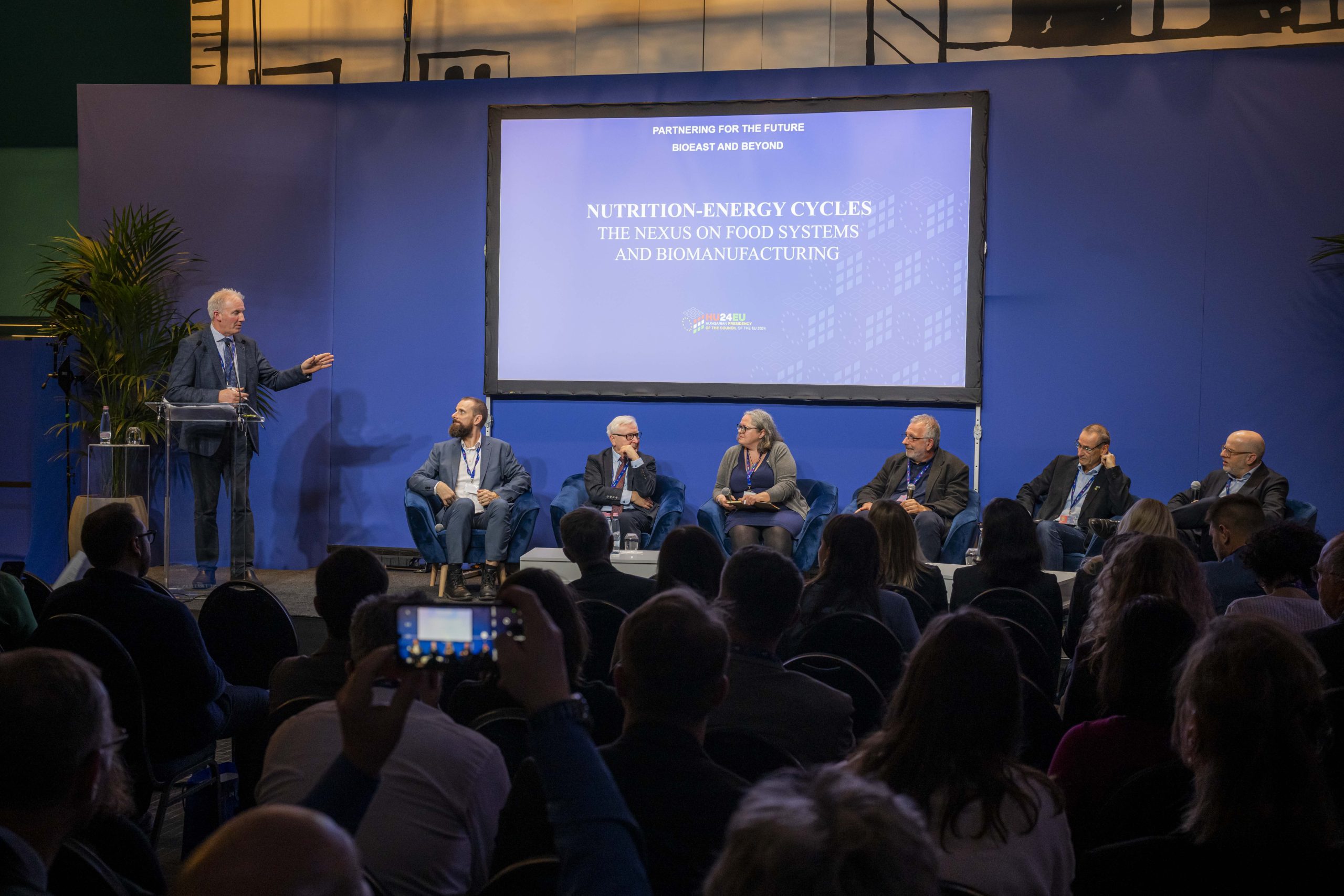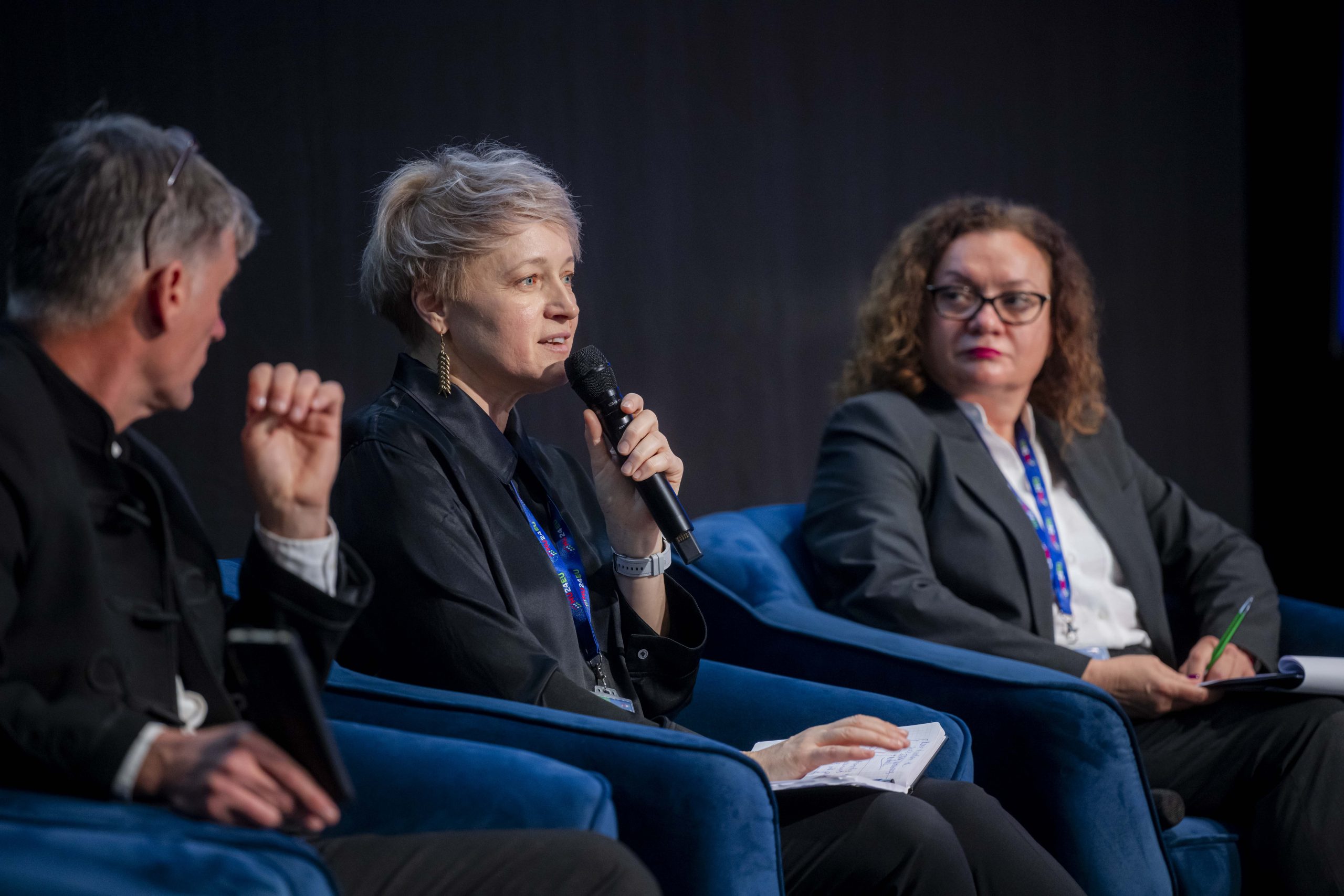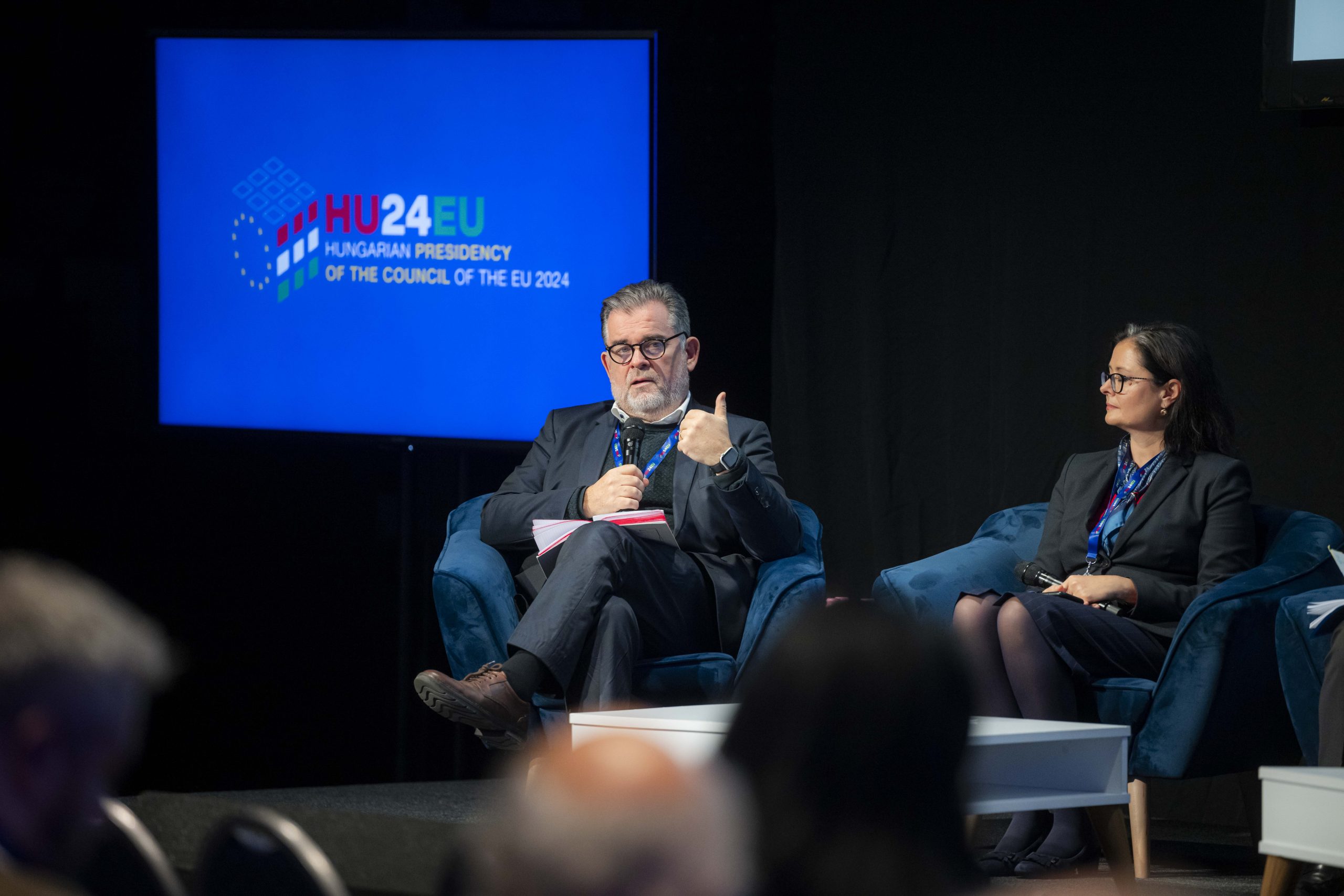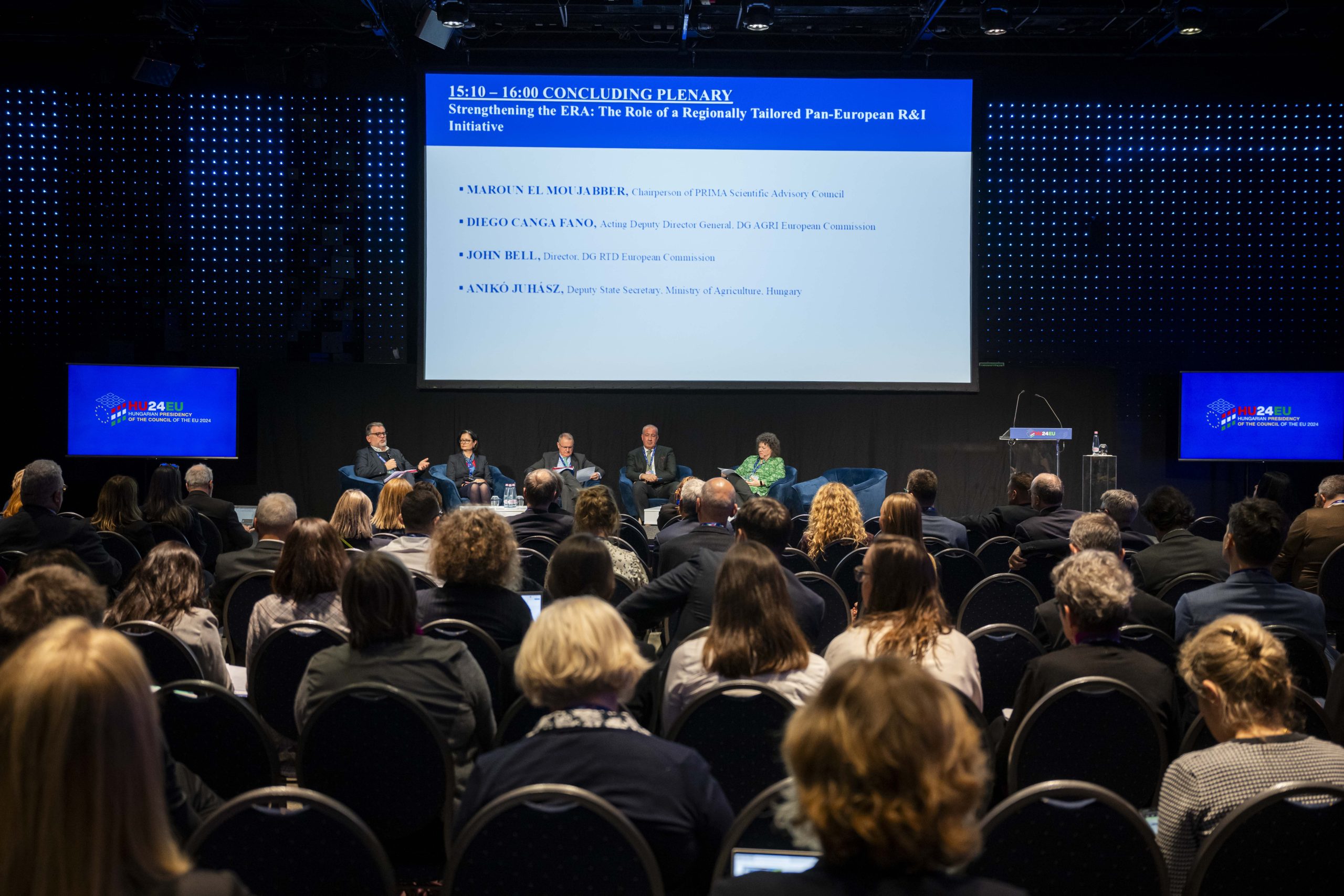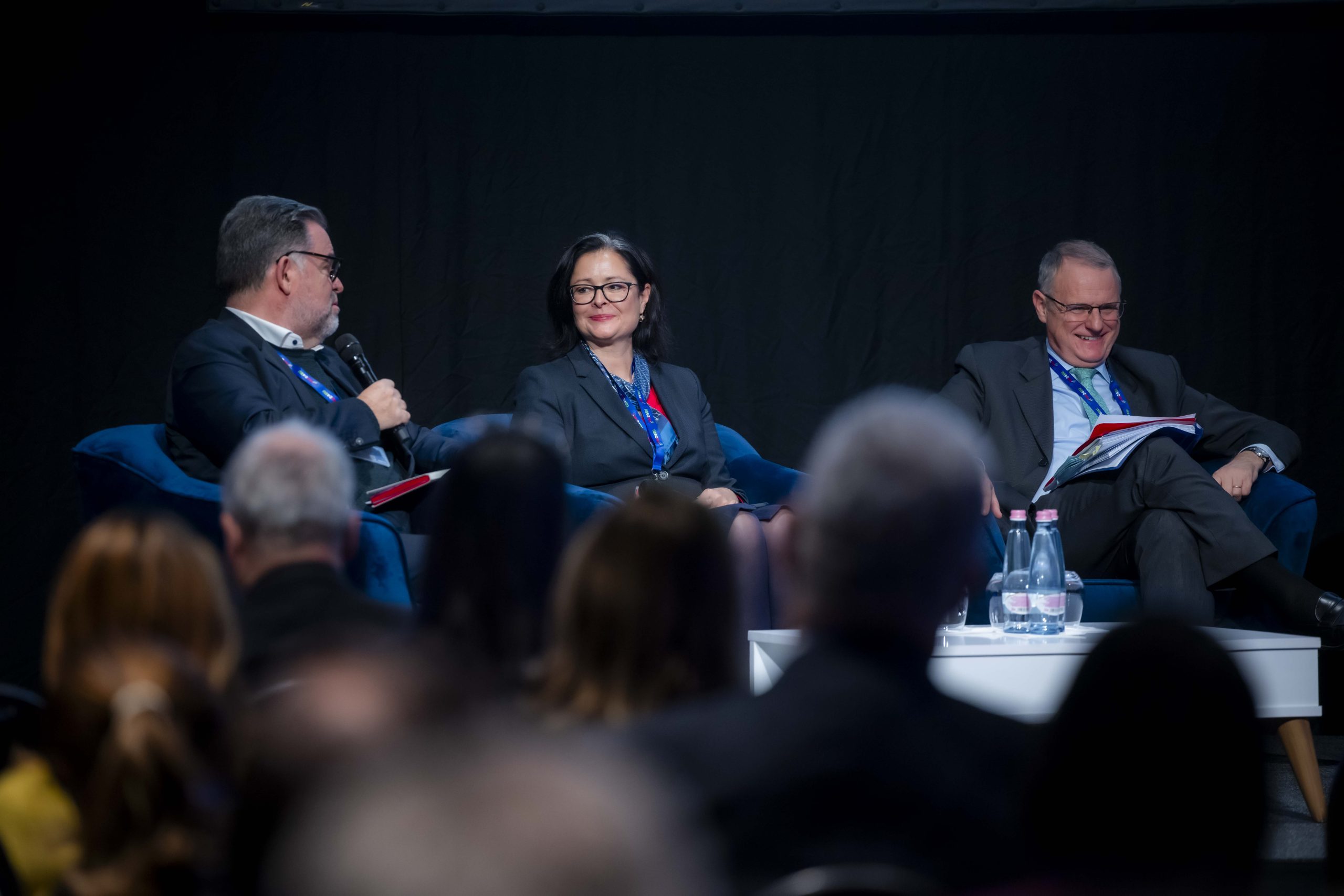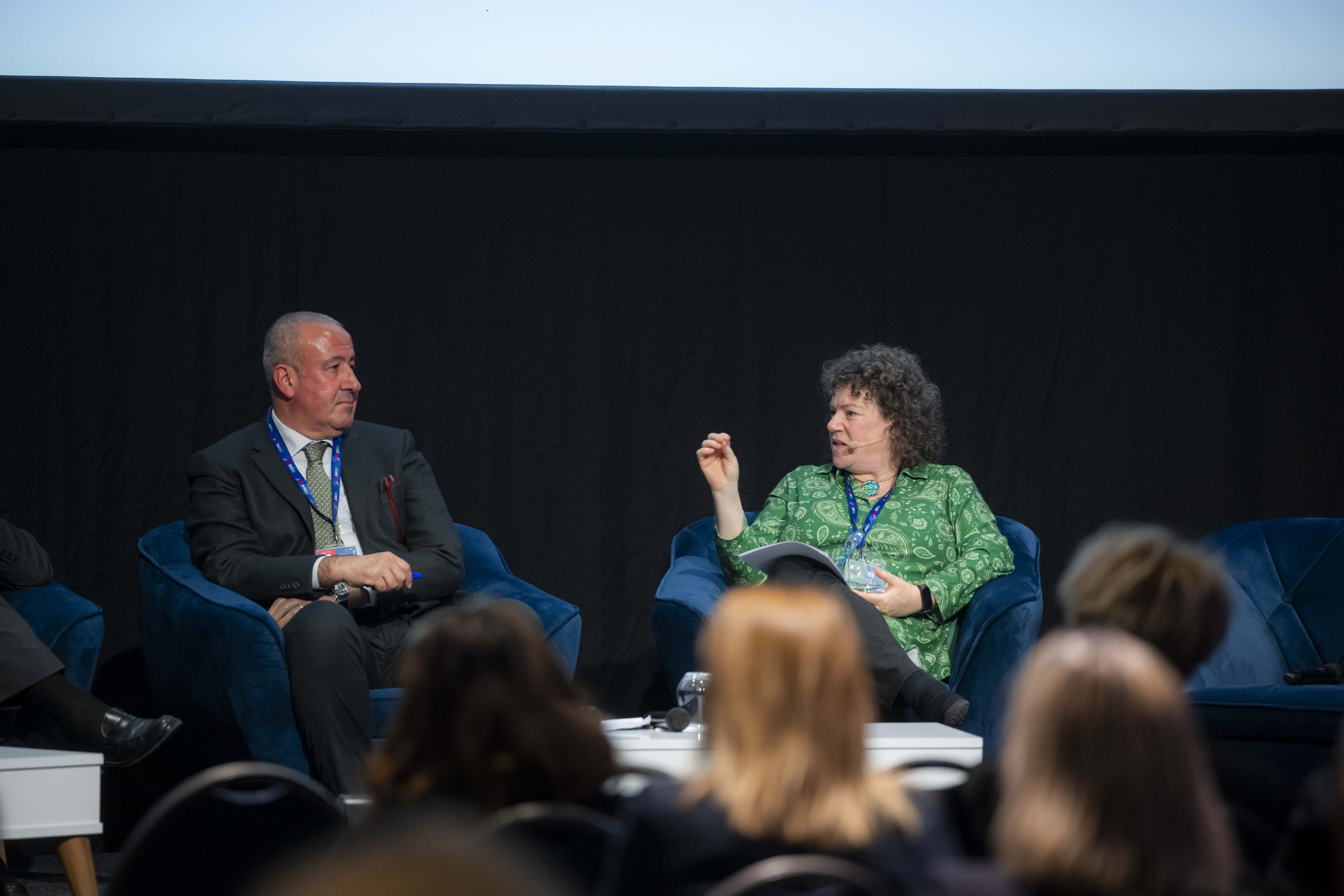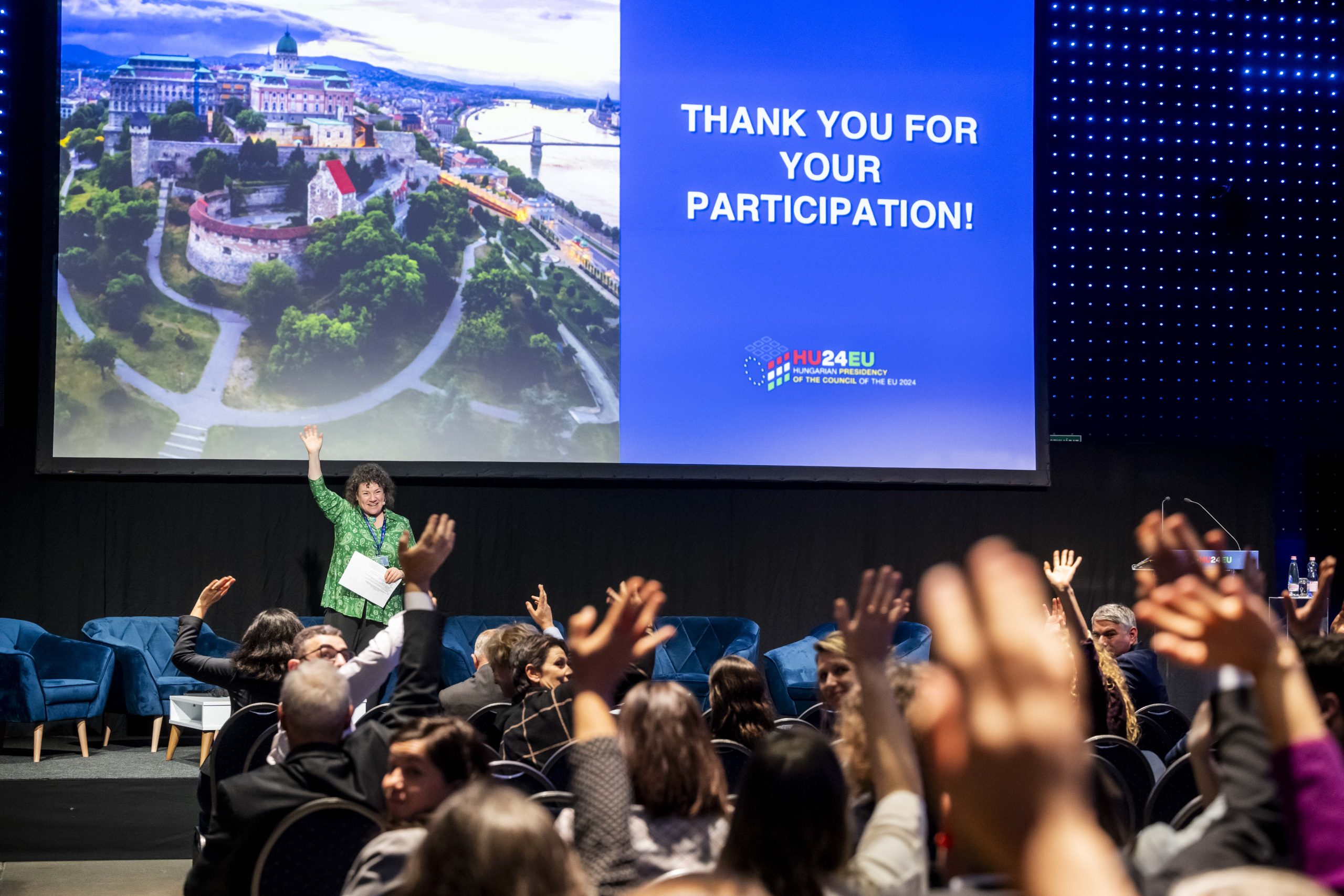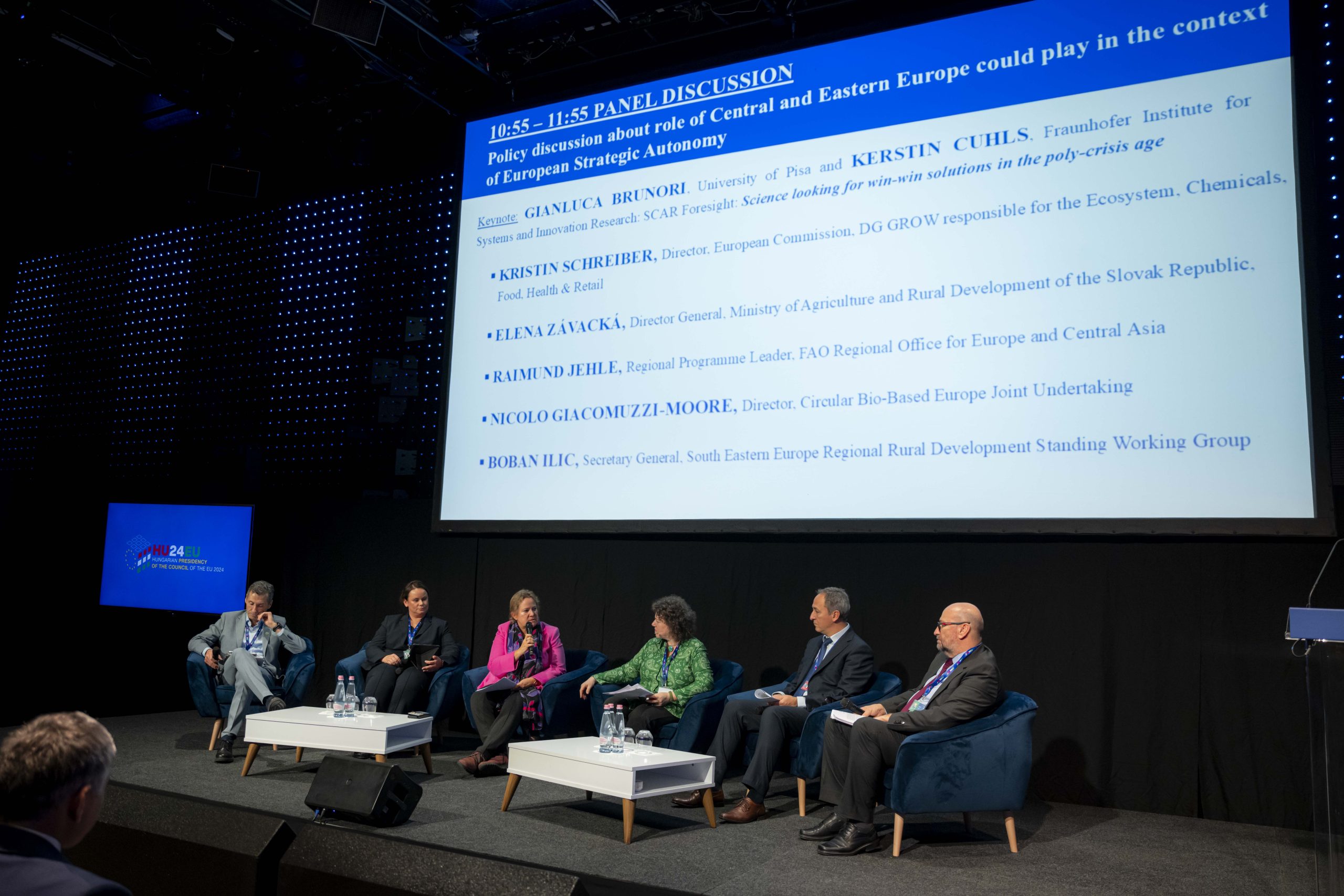Partnering for the Future” high-level conference on Central and Eastern European research and innovation priorities in the context of sustainable soil and freshwater resilience, food systems security, and bioeconomy-related policies. 4-6 December 2024.
Between 4 and 6 December 2024, the Hungarian presidency of the Council of the European Union, in close cooperation with the European Commission, the Standing Committee on Agricultural Research (SCAR), and the BIOEAST Initiative, hosted the high-level conference “BIOEAST and Beyond: Partnering for the Future” in Budapest, Hungary. The event gathered over 350 key stakeholders, including ministers, directors, policymakers, researchers, and private sector representatives, to discuss Central and Eastern European (CEE) research and innovation (R&I) priorities in the context of sustainable soil and water resilience, food systems security, and the bioeconomy.
This conference represented a milestone of the Hungarian presidency’s agricultural and research priorities. It was preceded by a series of policy forum and workshops, triggered by a political declaration signed by 22 ministers from 10 EU member states and one neighbouring country. A Council Conclusions on “a potential Europe-wide R&I initiative on advancing sustainable natural resource management, food systems security, and the deployment of the bioeconomy” were adopted by the 27 EU member states, marking a significant step forward. The conference also highlighted the important role and effectiveness of Agricultural Knowledge and Innovation Systems (AKIS) and the role of CAP in developing it.
The conference aimed to initiate in-depth discussions on research priorities of particular importance to the region, including soil health, freshwater resilience, food systems security, and localized biomanufacturing. These thematic areas were identified as vital for enhancing the production and utilization of local biomass across Central and Eastern Europe, the Western Balkans, and other accession countries.
Discussions also underscored the region’s critical role in addressing European challenges, such as achieving Strategic Autonomy, enhancing sustainability, and building resilience. The conference sought to align the CEE region’s R&I capacities with the broader objectives of the European Research Area (ERA).
Highlights of the Conference
Addressing Systemic Shocks
Plenary discussions explored the systemic shocks affecting European agri-food systems, such as climate change, resource scarcity, and geopolitical tensions. Keynote speakers highlighted the interconnected roles of soil, freshwater, food systems, and bioeconomy in fostering resilience and sustainability.
Thematic Panels
– Carbon-Water Cycles Nexus: Examined the critical interdependencies between soil health and freshwater resilience, with a focus on green water cycles, new governance models and research priorities to promote sustainable land and water management.
– Nutrition-Biomanufacturing Cycles Nexus: Highlighted opportunities for food system security and the valorization of biomass through bioeconomy solutions, particularly in circular economic models integrating both food and non-food biomass.
Policy and Science Dialogues
Panels discussed policy needs for research, focusing on the CEE region’s contributions to European Strategic Autonomy. This included exploring EU Missions such as ‘A Soil Deal for Europe’ and ‘Restore Our Ocean and Waters,’ with an emphasis on sustainable technologies, innovative governance frameworks, and regional biomass resources. Also discussed the importance of synergies between different policies to improve knowledge and innovation systems, highlighting the role of CAP based on the “Conclusion on farmer focused post 2027 Common Agricultural Policy: Towards a competitive, crisis-proof, sustainable, farmer-friendly and knowledge-based future EU agriculture”.
Commemorating World Soil Day
On 5 December, the conference celebrated World Soil Day, emphasizing the importance of soil health for sustainable development. The event included keynote addresses and the presentation of awards, such as the Hungarian Presidency Soil Profile and the National Soil of Hungary 2024.
Advancing a Pan-European R&I Initiative
The conference reinforced the need for a dedicated R&I initiative to enhance sustainability, resilience, and innovation in the CEE region. Identified priorities include soil health, green water management, food systems security, biotechnologies, and societal engagement in sustainability transitions.
Participants emphasized the importance of conducting a comprehensive gap analysis as recommended by the Council Conclusions. This analysis will assess the feasibility and potential impact of a Europe-wide R&I initiative focused on sustainable natural resource management and bioeconomy deployment in the CEE region.
The Hungarian presidency highlighted the importance of preparing a BIOEAST position paper to articulate regional priorities for the next Multiannual Financial Framework (MFF) and Horizon Europe’s successor, FP10. This document aims to ensure that the region’s needs are fully integrated into European funding and programming frameworks and programming and the development of Agricultural Knowledge and Innovation Systems (AKIS) in the future CAP.
Source of news: website of Hungarian Presidency of the Council of the EU
RELATED DOCUMENTS
- Conference materials
- Joint Declaration of the Ministers of Agriculture and Ministers of Research of the BIOEAST Initiative’s Member States
- Council Conclusions
- Stakeholder Manifesto 